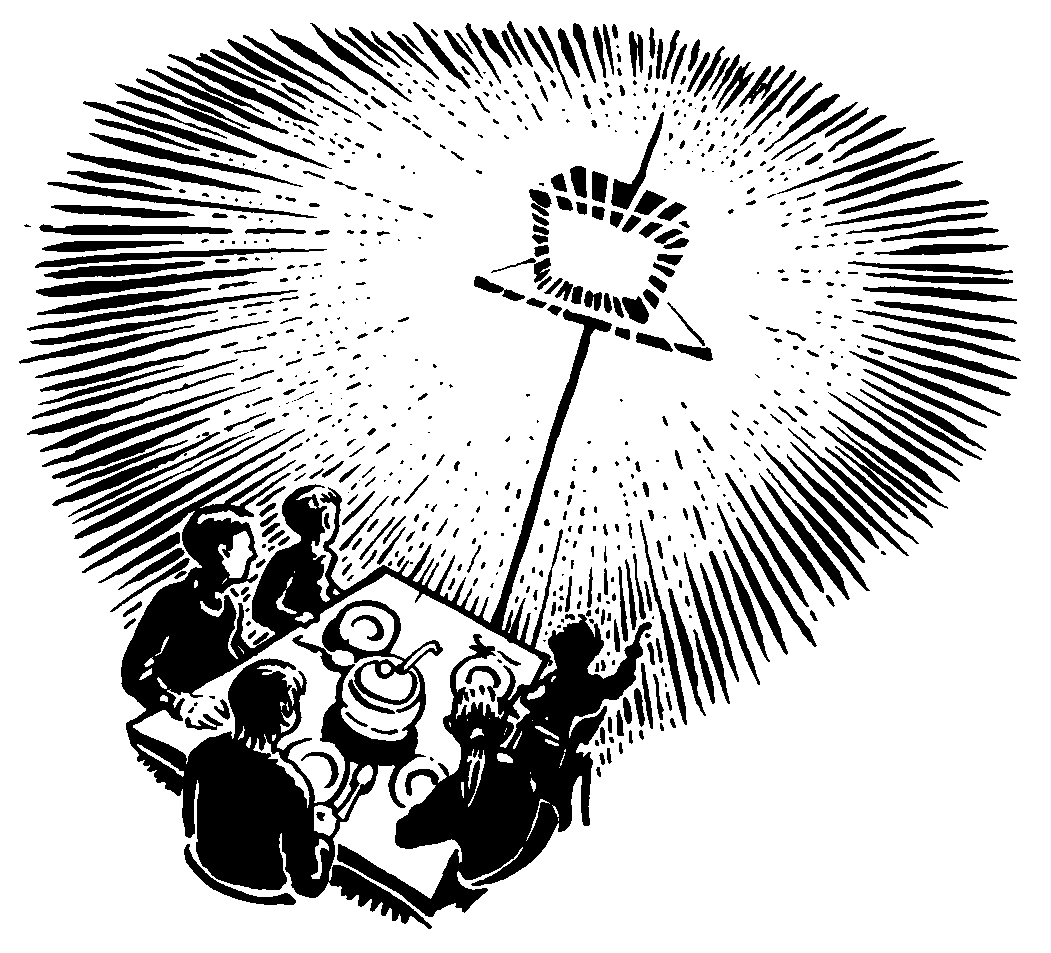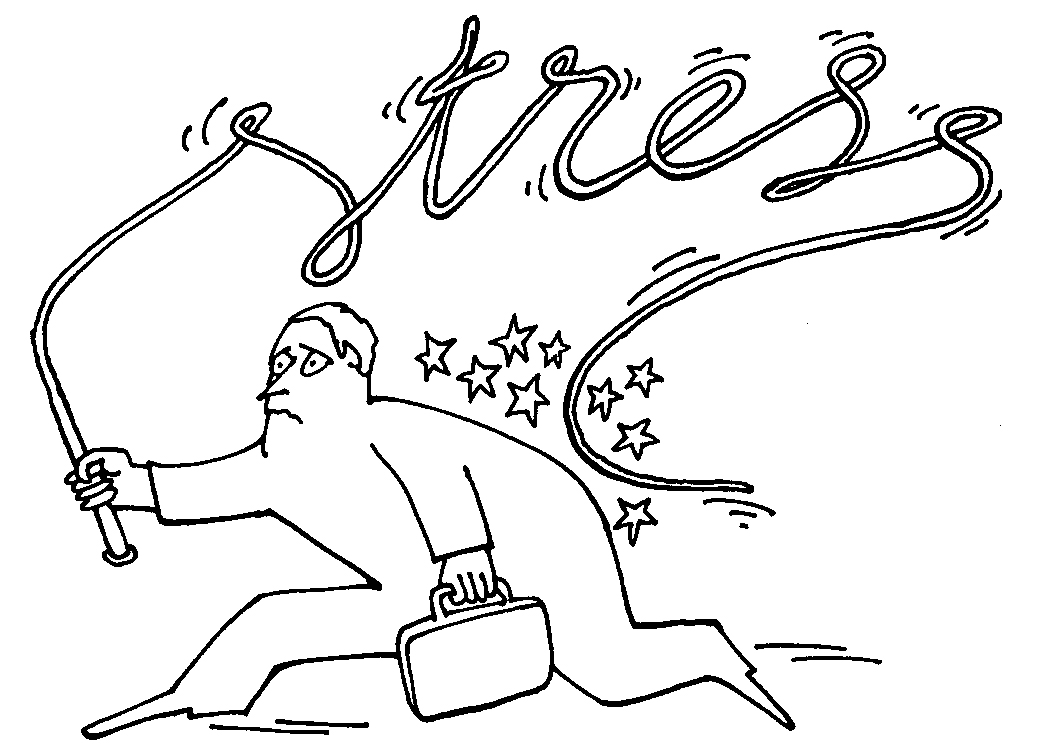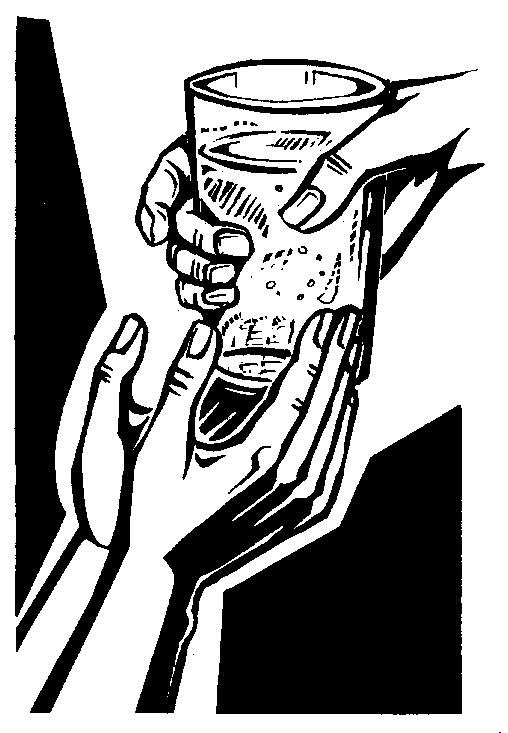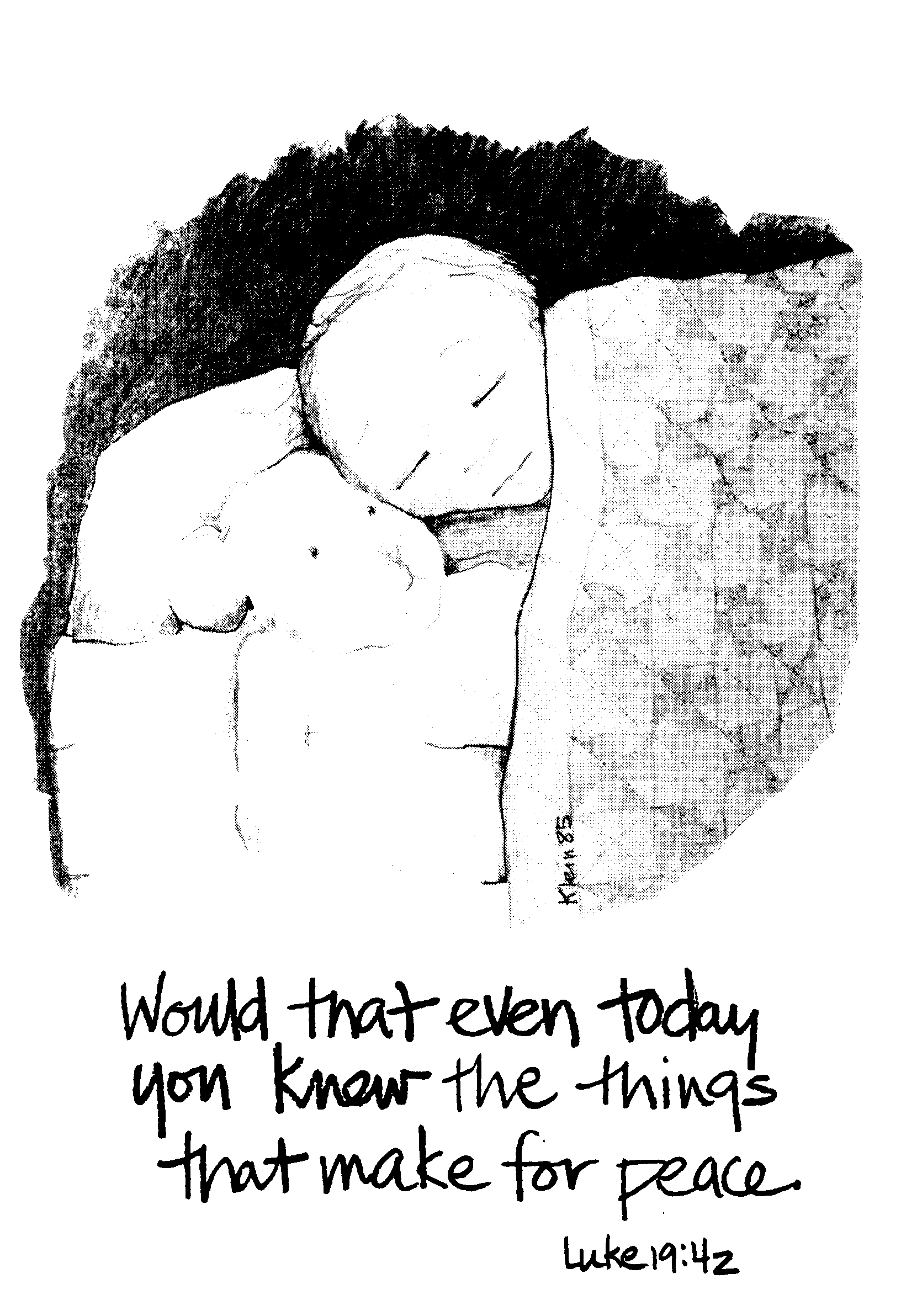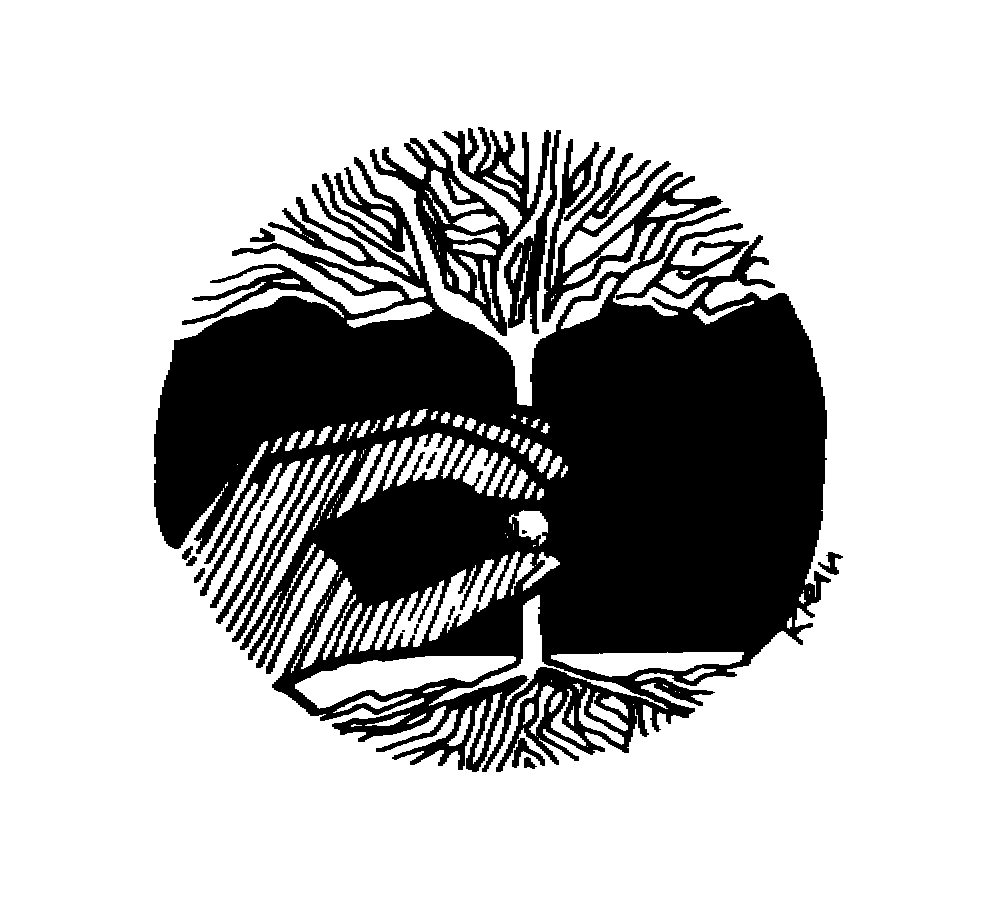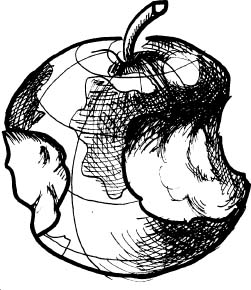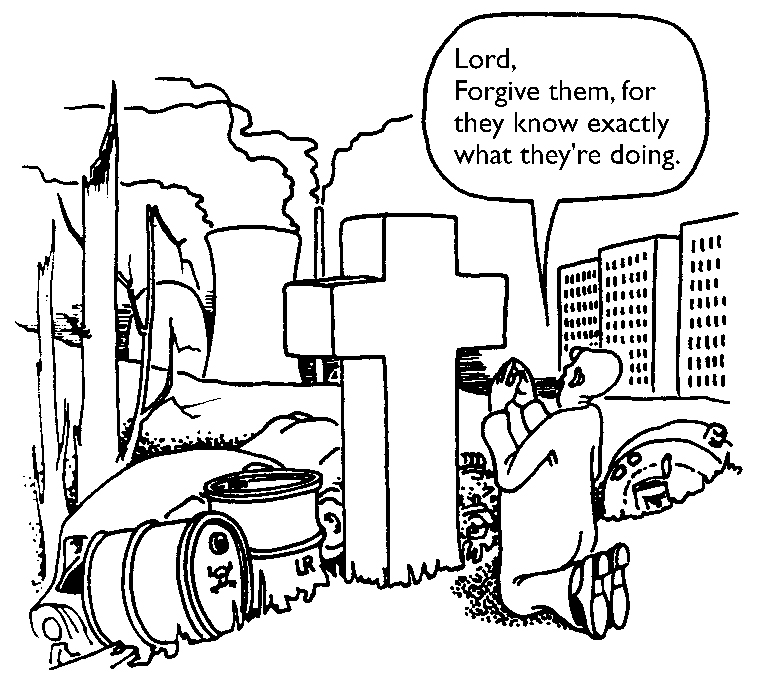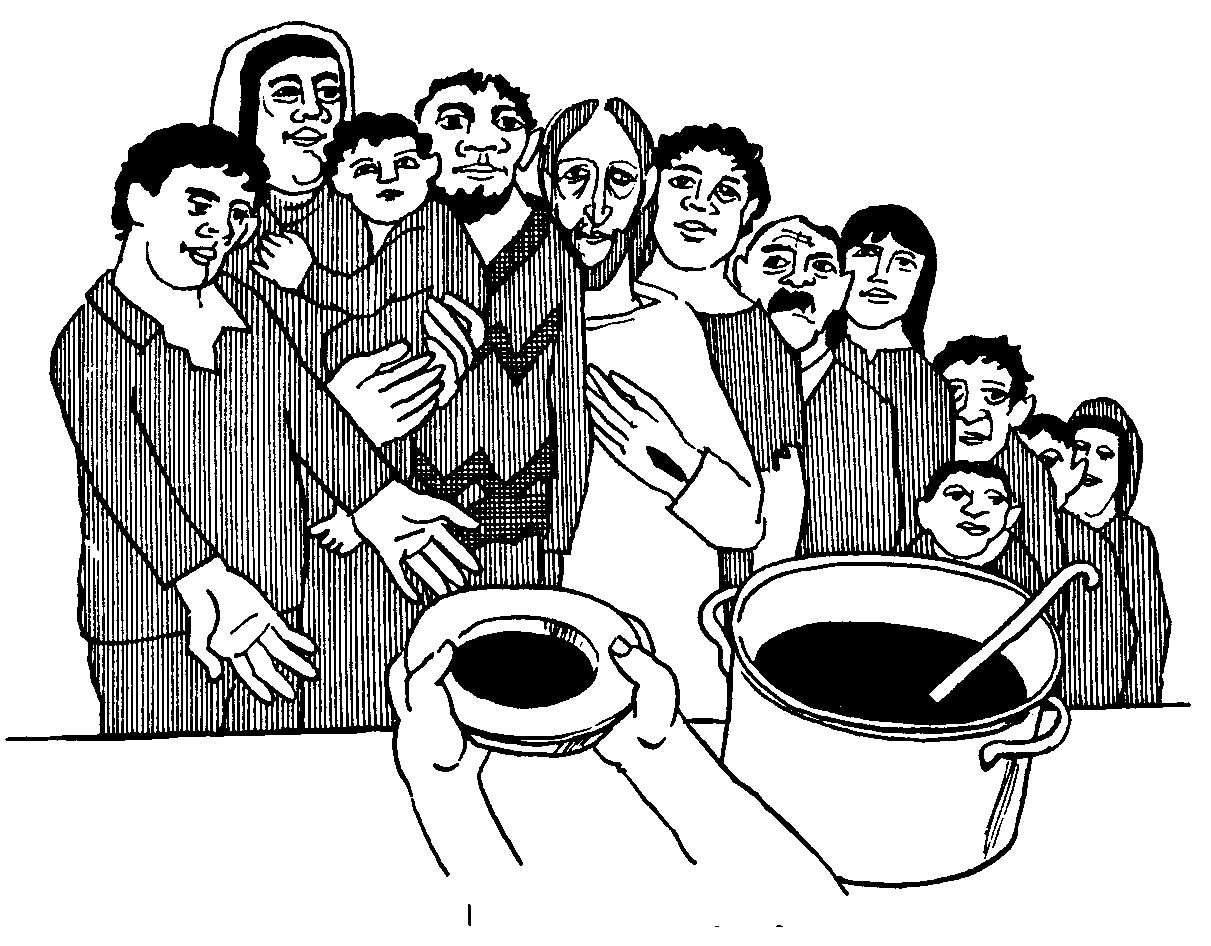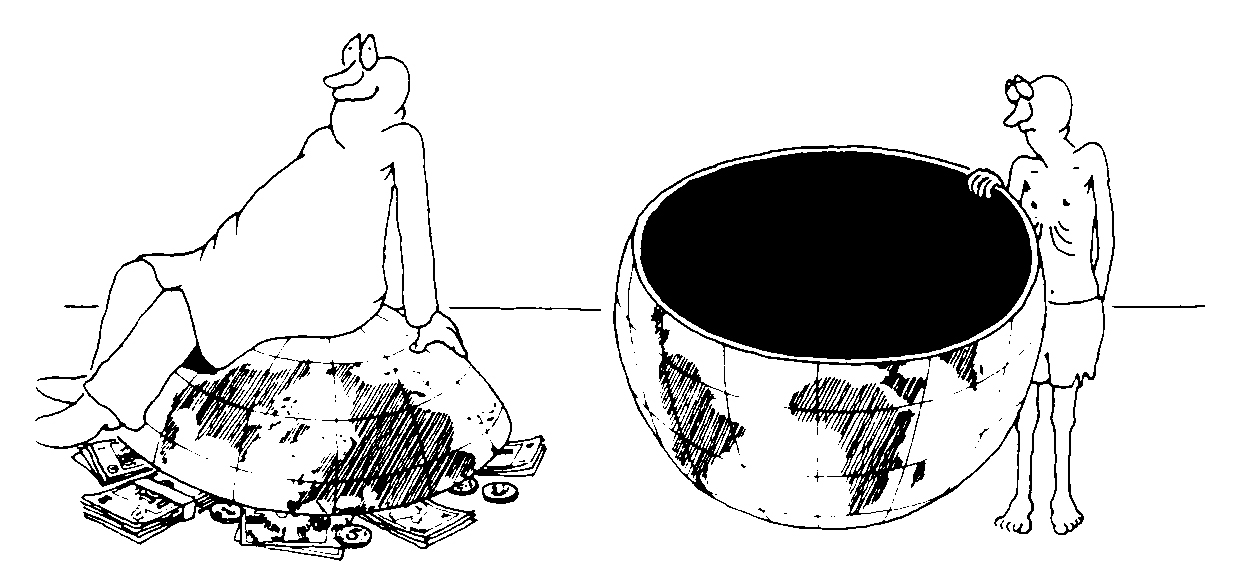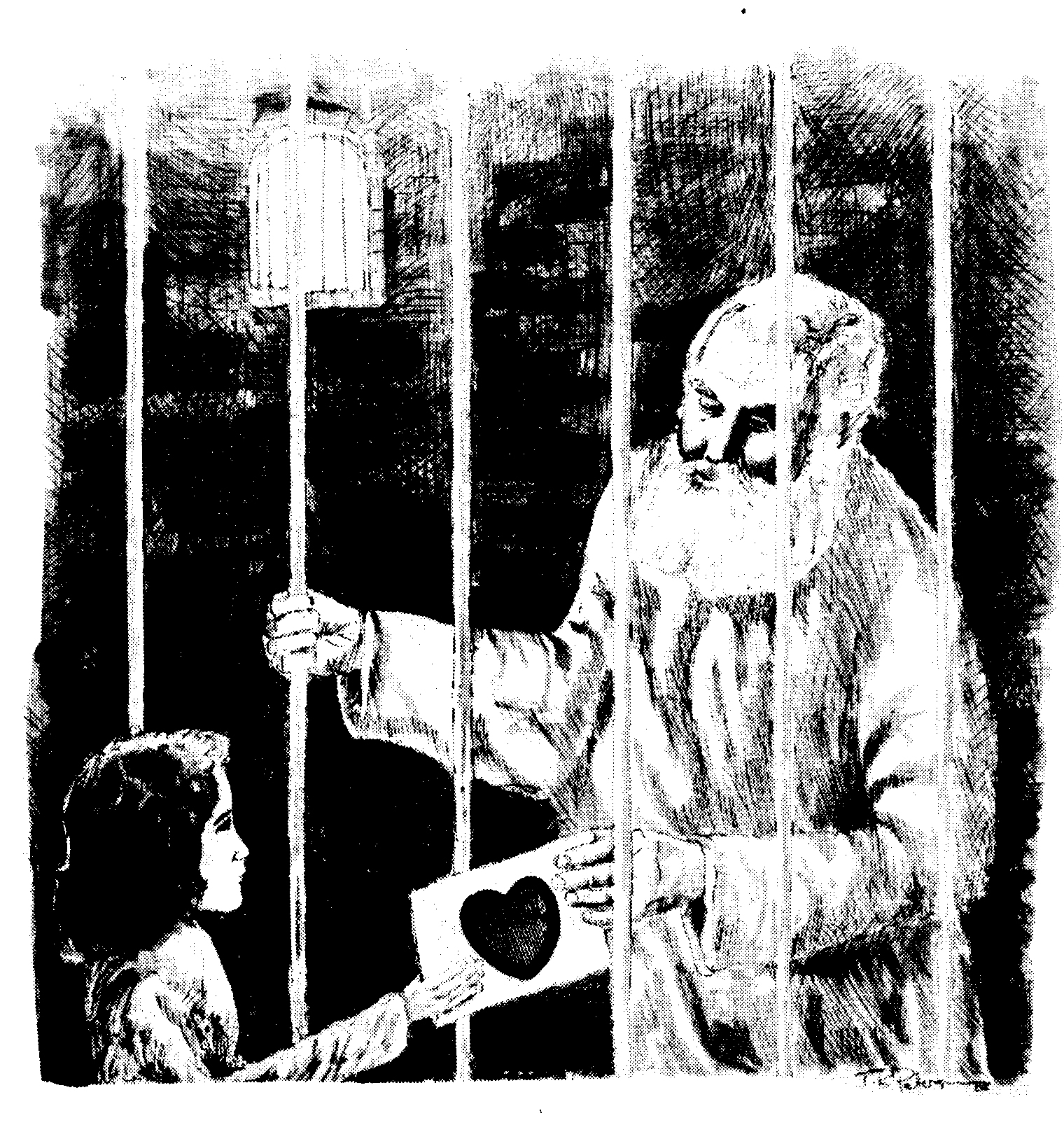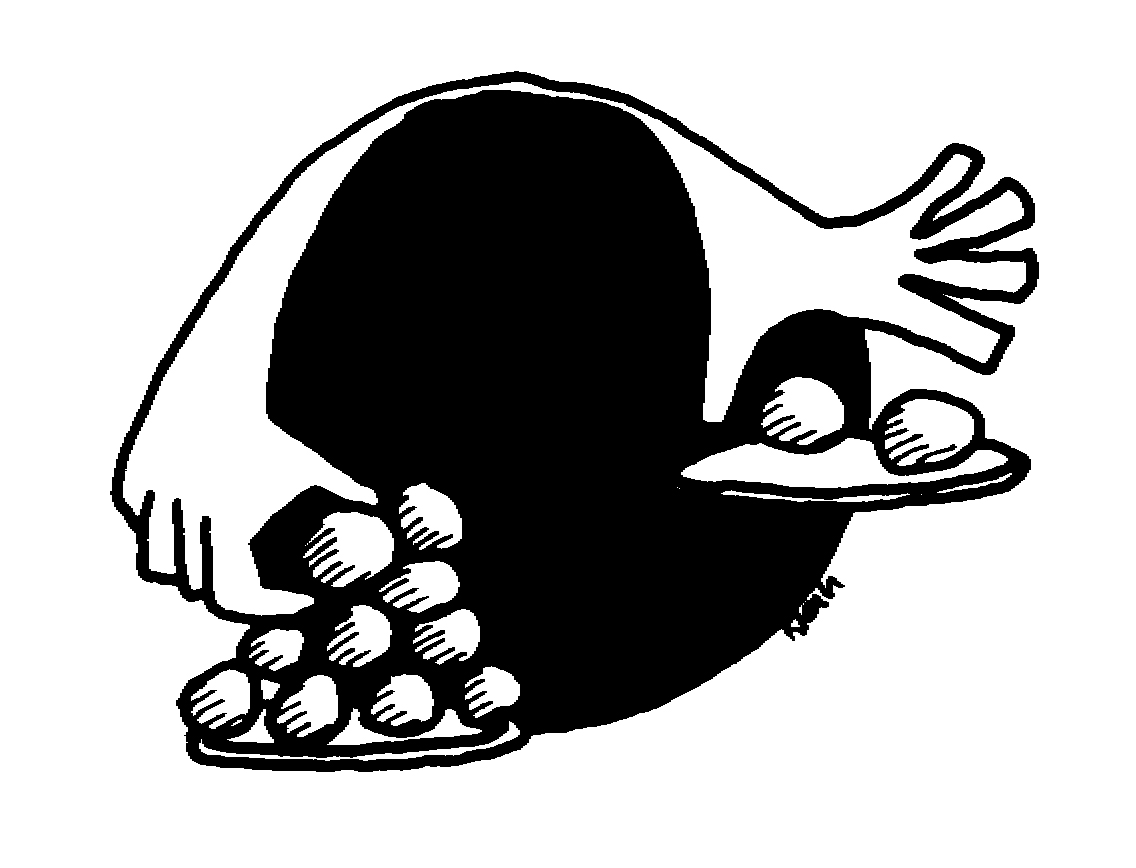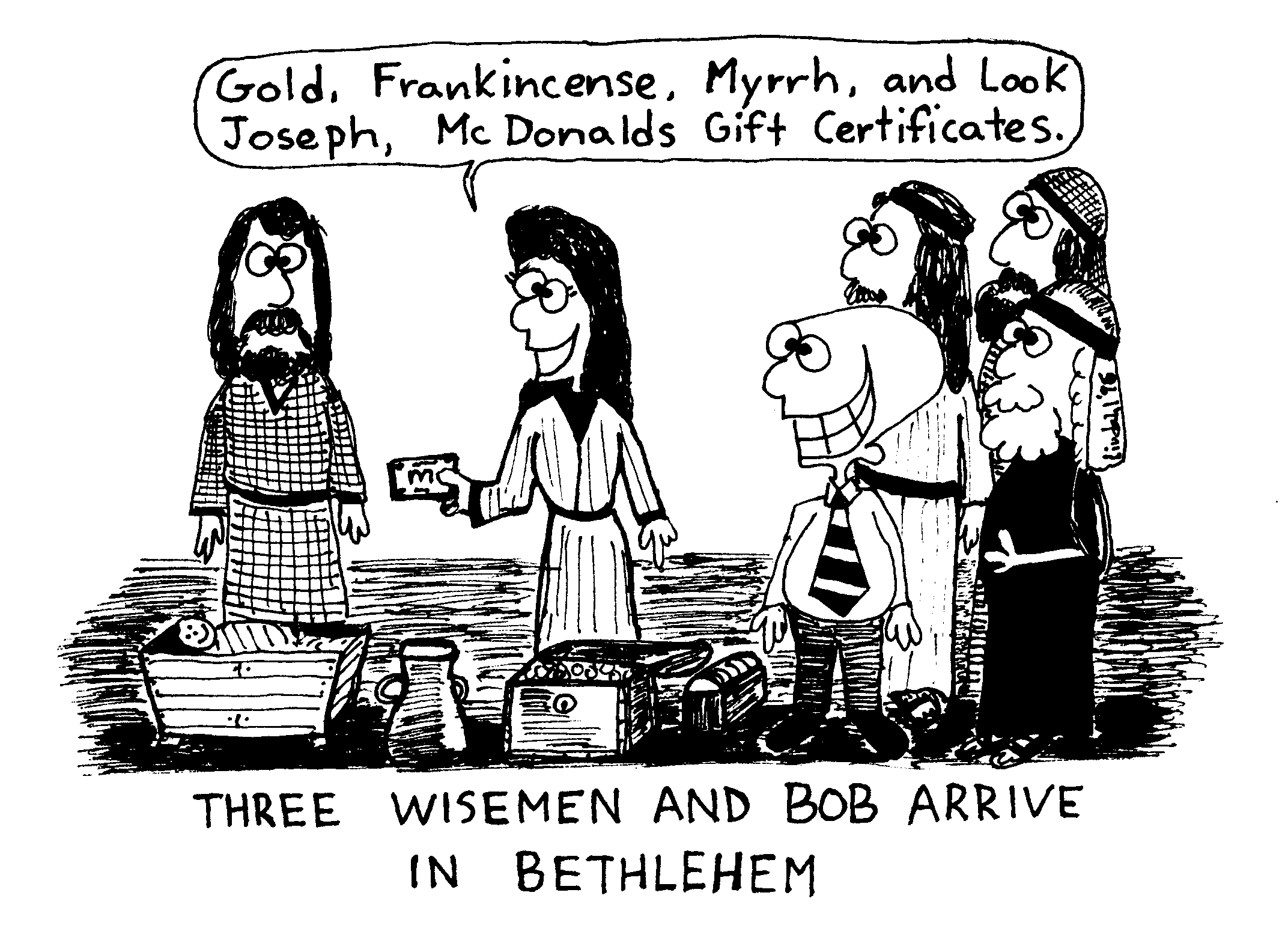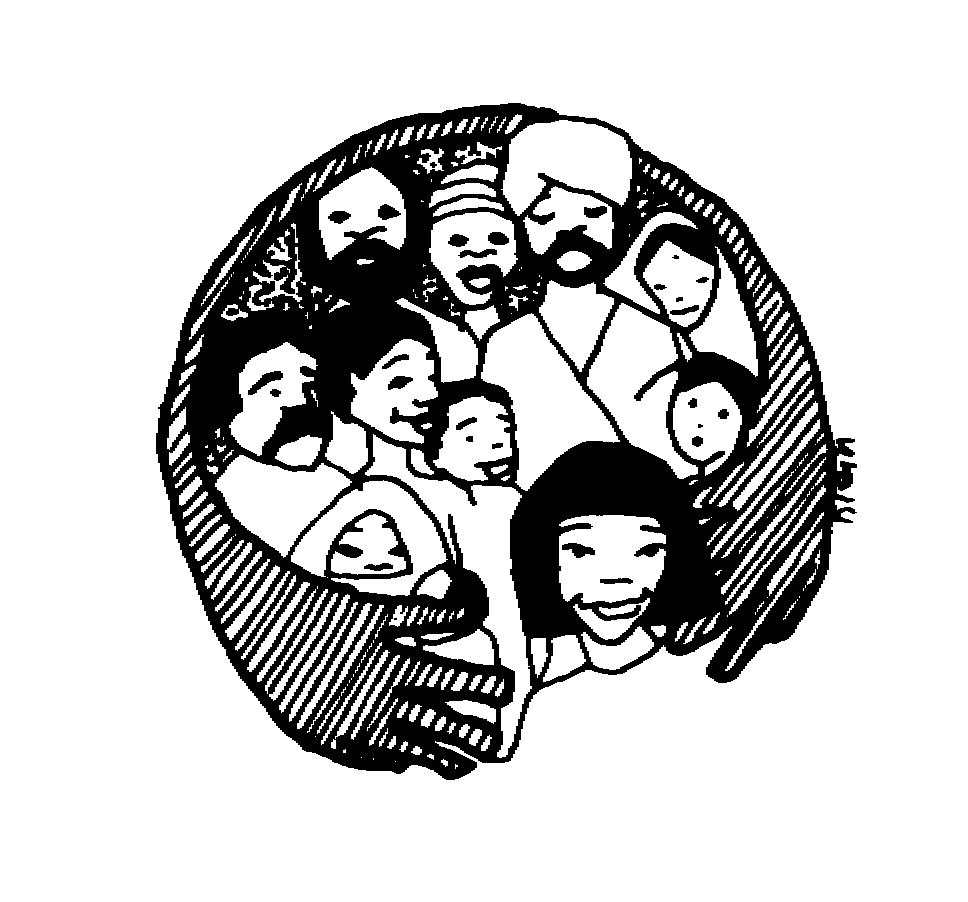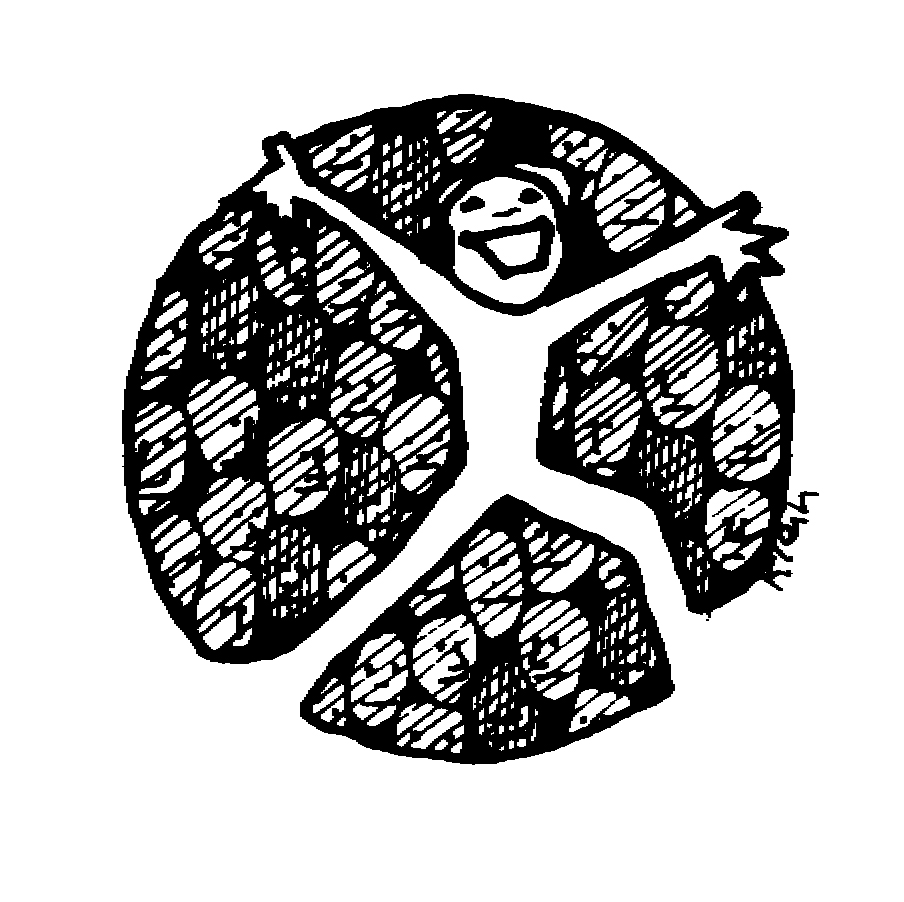Our Simpler Living
Daily Nudge
Table of Contents
NOTE: The months themselves are arranged in reverse order, December first, January last, though I can't remember why.
Note: MF = Moveable Feast, such as Mother's Day, in contrast to Fixed Feasts, such as Christmas, always 12/25.
- Month 1*: Life Principles of Voluntary Simplicity -- Week 1: Do Justice || Week 2: Learn from the World Community || Week 3: Nurture People || Week 4: Non-conform Freely
- Month 2*: Celebrating More Responsibly-- Week 1: Music/Worship || Week 2: Preparing for Lent, Easter and Other Spring Festivals || Week 3: Rites of Passage || Week 4: What Is 'Enough'?
- Month 3*: Global Justice--Week 1: Language || Week 2: Hunger & Homelessness || Week 3: Peace/Non-Violence || Week 4: Advocacy/Boycotts
- Month 4*: Earth Care--Voluntary Simplicity Life Principle #5: Cherish the Natural Order--Week 1: Water || Week 2: Energy || Week 3: Chemicals & Waste || Week 4: Consumables
- Month 5*: Earth Care // Week 1: Reduce // Week 2: Reuse // Week 3: Recycle // Week 4: Restore
- Month 6*: Alternative Giving // Week 1: Contributions // Week 2: Volunteering // Week 3: More Alternative Giving // Week 4: Planning Christmas Festivals Early
- Month 7*: Money & Goods // Week 1: Green Business // Week 2: Green Investing // Week 3: Green Products // Week 4: Personal Finance, Credit & Debt
- Month 8*: Personal Choices, Happiness, Fulfillment // Week 1: Work, Stress & Health // Week 2: Support // Week 3: Transportation & Travel // Week 4: Homes & Buildings: Construction, Energy Generating, Appliances
- Month 9*: Non-conform Freely // Week 1: Media Literacy || Week 2: Advertising & Public Relations || Week 3: Alternatives to TV, Video Games, Movies, Gambling || Week 4: Marketing
- Month 10*: Sustenance // Week 1: Food || Week 2: Recipes (from Developing Countries) & Food Preparation || Week 3: Sustainable Agriculture, Organic Farming || Week 4: Gardening
- Month 11* // Week 1: More Celebrating || Week 2: Preparations || Week 3: Unplug the Christmas Machine || Week 4: Whose Birthday Is It, Anyway?
- Month 12*: Responsible Celebrating (Advent) Week 1: Ten Tips for a Simpler, More Meaningful Christmas, #1-6 || Week 2: 10 Tips, #7-8 || Week 3: 10 Tips, #9-10+ || Week 4: Christmas, Kwanzaa, Holy Innocents
Month 12*
Responsible Celebrating
12/1--Begin using Whose Birthday Is It, Anyway? Use the calendar of your choice every day, the Biblical reflections each week and the services and other activities as appropriate. Some editions have an audio version. Review the User's Guide.
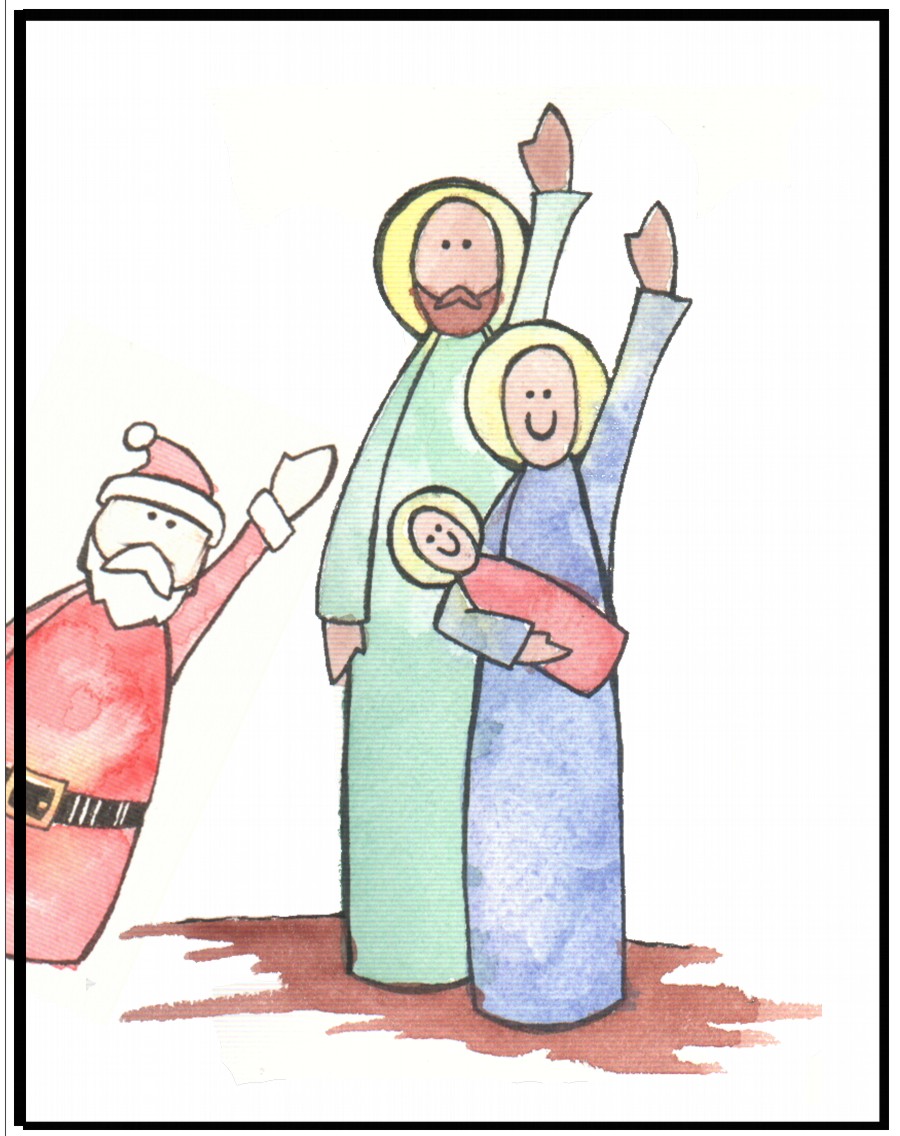
Graphic from Alternatives' collection Worship Alternatives: Art
More ART
Ten Tips for a Simpler, More Meaningful Christmas
12/2--Tip #1. Plan ahead. Instead of going on auto-pilot the day after Thanksgiving, hold a family meeting to decide what the group really wants to do and who's going to do what. Use Alternatives' "Let's Talk About Christmas!" Worksheet to guide your discussion.
12/3--Tip #2. Avoid debt. Refuse to be pressured by advertising to overspend. Use credit cards wisely. Avoid cash advances. They have no grace period, interest accumulates immediately.
Author of 'They Will Inherit the Earth: Peace and NonViolence in a Time of Climate Change' -- SLW! #114: Part 1 // TCGP #98: Part 2
12/4--Tip #3. Avoid stress. Give to yourself... a peaceful space, for example. Don't assume that things have to be the same way they've always been. For more on stress, see August.
12/5--Tip #4. Draw names rather than everyone giving something to everyone else in your giving circle. Set a ceiling for each recipient.
12/6--St. Nicholas Day (To Celebrate, pp. 34-40). Tip #5. If you need a symbol for giving (in addition to Jesus and the Wise Ones), learn about St. Nicholas. Santa Claus has been completely taken over by commerce. Read, share, use Alternatives' "St. Nicholas: A Puppet Play" or "A Saint Nicholas Day Celebration."
12/7--Tip #6. Give appropriate gifts. Get to know the recipient. Give what they want to receive, not what you want to buy. For help, use the "Appropriate Gift Questionnaire"
12/8--Christmas Is More Than Gifts and Glitter - The effort to celebrate a simple Christmas is led by a small, ecumenical nonprofit group originally called Alternatives. Organized in 1973 to protest the commercialization of Christmas, Alternatives (now Simple Living Works!) provides encouragement and support for those who want to celebrate Jesus' birthday. The group emphasizes relationships and traditions over things, hoping to avoid stress and debt.
For more information see Month3* and Month 11* and read Living More with Less, Celebrations, 188-208.
Other holidays in December include
Return to Table of Contents
Week 2: More Advent
12/9--Tip #7. Give alternative gifts. Give 25% of what you spent last year to the truly needy... individuals or groups locally, nationally or internationally. For help, use Alternatives' Christmas Budget Worksheet (Cost Analysis Form).
[
12/10--International Human Rights Day. Contact your denomination's Human Rights Association and find out what they do. [ Learn about the UN's Declaration of Human Rights. ]
12/11--More Tip #7. Buy crafts and clothing from developing countries at alternative gift markets, not from commercial importers, so that the artisans receive a fair price for their work. For more, see June.
12/12--Yet More Tip #7. Give of yourself, not just "stuff" - a coupon book for future services (such as baby-sitting or an "enchanted evening") or something baked, sewn, handmade, composed, etc. For more, read "Gift Giving" in Treasury of Celebrations, pp. 39-56, or To Celebrate, Chapter 3, pp. 49-70
12/13--More on Giving of Ourselves... giving something more meaningful than stuff for the giver and the receiver - giving ourselves, not our money or things bought with our money, but our time and our special skills. (Continued)
12/14--Baking, sewing, woodworking, composing poetry or playing music. The point is not just to find a substitute for a thing-gift at Christmas but to build and strengthen a relationship that will nurture and be nurtured all year long. (Continued)
12/15--Hand-made coupon books for promises of time or services at the convenience of the receiver, not the giver, are both generous and well received. Coupons for child care, for a special meal, for lawn mowing... you name it.
12/16--Tip #8. Give children ONE thing they really want, rather than so many gifts. If need be, pool funds.
and Responsible Investment
Return to Table of Contents
Week 3: Yet More Advent
12/17--Tip #9. Take turns opening the gifts around the tree, so that each gift can be admired and each giver thanked. To avoid the emphasis on gifts, don't put them under the tree until after attending worship service on Christmas Eve or Christmas Day.
12/18--When I was a child many of the relatives would gather on Christmas Eve for a grand meal. Then we would gather around a tree that always reached to the ceiling. It was surrounded by a mountain of gifts. Everybody gave something to everybody else. With little fanfare I would start ripping into all my stuff. It seemed that no one paid much attention to what others were getting. After an hour or so it was over. (Continued)
12/19--One year I asked my dad if we could go to church on Christmas Eve. He agreed. But I didn't ask until Christmas Eve. When we got back, the others were pretty unhappy. We had changed the plan. We hadn't considered the group. Now, after we all go to church, we gather for some favorite foods. We take turns opening our gifts with considerable fanfare for each one. Though we are only four, it is more meaningful than when there were a dozen!
12/20--Tip #10. Make changes slowly but persistently. Don't try to change everything and everybody all at once. The resistance will make you feel defeated and lonely. For more help, read the classic Unplug the Christmas Machine, especially Chapter 9: "Christmas Revival", or "Getting Started" in Treasury of Celebrations, pp. 70-87.
12/21--First Day of Winter (To Celebrate, p. 163)
12/22--We have much better symbols of Christmas and giving than Santa, who has been completely taken over by commercial interests to sell us more stuff. We have Jesus giving himself to us and the Three Wise Ones giving gifts to Jesus. We have St. Nicholas, who gave gifts to the needy. Let's not confuse our children with stories about Santa. Let's tell the real stories of our faith.
12/23--One Christmas my mother bought a new plastic Santa to put on the top of the tree. I didn't think much of it. When my Dad saw it, he quietly insisted that it come down. After all, he was Sunday School Superintendent. Mother replaced Santa with a Christmas star. That incident had a profound effect on me. As greedy as I was as a youngster, I got the point that we celebrate Jesus' birth, not the coming of Santa Claus.
12/24--Share memories and stories besides gifts and food. Play Alternatives' "Christmas Game."
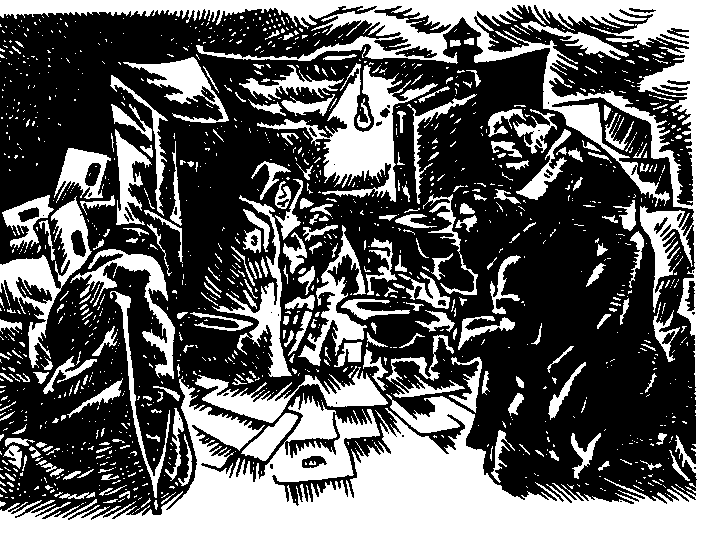
Graphic from Alternatives' collection Worship Alternatives: Art
More ART
Return to Table of Contents
Week 4: Christmas
begins (12 days till Epiphany)12/25--Christmas Day (birth of Jesus observed). Treasury of Celebrations, pp. 207-225.
12/26--First Day of Kwanzaa. For more information read To Celebrate, pp. 163-164.
12/27--Keep your tree and decorations up until Epiphany, 1/6/23, when the Wise Ones arrive with their gifts.
12/28--Holy Innocents. Read, share, use Alternatives' "Remembering the Holy Innocents: A Service for December 28th." And A Poem for Holy Innocents Day, Dec. 28
The Holy Family escaped the slaughter by their Flight into Egypt, a good time for us to think and talk about immigrants and welcoming the stranger.
Graphic from Alternatives' collection Spirit of Simplicity:
Quotes & Art for Simpler Living and Global Justice
More ART
12/29--There are three levels of working toward justice.
1) Symbolic acts, like giving up a meal, help change us though they do not alleviate another's hunger. Education and worship are largely symbolic acts. Though they don't make any thing, they feed our spirits and minds. Symbols are powerful!
[
12/30--2) Sharing our resources of time, money and energy are small steps to alleviate another's situation.
12/31--3) Systemic change, which is more complex, requires recognition of a need for change by communities and governments. It requires conversation, negotiation, a commitment to cooperation, and constant pressure from caring people.
BONUS SLW! Legacy Blogs
Simpler Formats for 2022 and beyond--Simpler Living Weekly Nudge becomes monthly. New subscribers, send NUDGE to SimpleLivingworks@yahoo.com
SLW! Blog/eNews/ALERT. To subscribe send BLOG to SimpleLivingworks@yahoo.com.
Subscribers to SLW! Podcast and The Common Good Podcast (TCGP) have received 'Simpler OneEarth Living' Podcast, which I produced and co-hosted. Lee Van Ham of Jubilee OneEarth Economics contributed interviews. This makes good sense since the missions of both SLW! and Jubilee OneEarth Economics are so complementary and the two work together closely. The podcast is on pause after the 01/2 episode. All 250+ episodes are still available through the index at SLW.org, window #3 and also in the Daily Nudge, one at a time.
Your comments on these changes are welcome.
Peace, Gerald 'Jerry' Iversen, SLW! Chief Activist
Return to Table of Contents
Month 11*--More Celebrating
11/1--Let's Talk About Christmas! How are we going to celebrate Christmas this year? What is really most meaningful? Who's going to do what? Are we willing to spend less on ourselves and give more to the truly needy? Ask your family, relatives, friends questions like these. Write down your decisions and post them.
11/2--For help, use "Let's Talk About Christmas!" Worksheet. Consider using the widely read resource, the annual Whose Birthday Is It, Anyway? Timeless past editions are available online.
11/3--Simplicity is a disciplined life - disciplined, not punished or deprived or joyless. We are given great freedom to care about all of God's Creation, rather than nurturing the perversions and idols that our society has created and worships - our "stuff." Stuff exists to meet our needs. But if we spend our time, energy and money nurturing it instead of our relationships with God, others and ourselves, it will own us, control us and ultimately destroy us and the Earth.
11/4--The Jesse Tree -- Many meaningful symbols help us focus on preparations for Christmas during Advent... the Advent wreath, Chrismons, and the Christmas tree. When so many commercial symbols try to distract us from the real meaning of the season, the Jesse Tree is a lesser known but also powerful, visual focal point. (Continued)
11/5--At the beginning of Advent (no later than four weeks prior to Christmas) cut a branch from a lilac or forsythia just above a bud and place it in a vase filled with water. Make the cut clean and at an angle. A vase filled with clear glass beads and water will provide support for the Jesse Tree. Maintain a water level above the cut and the Jesse Tree will blossom by Christmas. Lilacs, regardless of their blossom color, will bloom white when forced this way. (Continued)
- "What Makes a Perfect Christmas?"
- "The Gift of Giving,"
- "What About Santa?"
- "Christmas Traditions That Work for You,"
- "Looking Behind the Cost of Christmas,"
- "What Is a Gift?"?
11/6--Isaiah foretells the end of the Assyrian rule over Jerusalem as God "hack(ing) down the thickets of a forest with an ax," razing it to stumps. The Israelites - David's line - had been so razed. Then comes the promise in Isaiah 11: 1-2, from which the Jesse Tree gets its name - "A shoot shall come out from the stump of Jesse, and a branch shall grow out of his roots." And from that line will come the Messiah... a new branch from a stump... a branch stronger and more fruitful than the original tree. (Continued)
- "What Makes a Perfect Christmas?"
- "The Gift of Giving,"
- "What About Santa?"
- "Christmas Traditions That Work for You,"
- "Looking Behind the Cost of Christmas,"
- "What Is a Gift?"?
11/7--The Jesse Tree is beautiful by itself. But it can also hold ornaments, symbols of the season of Advent, the season of waiting... a scroll to remember the prophecies... a dove to remind us of the peace that comes with Messiah... a crown for David's son, Solomon... a rose with twelve petals, one for each of Jesse's sons from whom sprang the twelve tribes of Israel. (Continued)
- "What Makes a Perfect Christmas?"
- "The Gift of Giving,"
- "What About Santa?"
- "Christmas Traditions That Work for You,"
- "Looking Behind the Cost of Christmas,"
- "What Is a Gift?"?
11/8--As we hang the ornaments - usually one per day - we tell the related story. The prophecies come to life with the appearance of blooms - new life from an old branch - as they did with the birth of Jesus Christ. For more information about possible designs of the ornaments, contact your public or church library.
Return to Table of Contents
Week 2: Preparations
11/9--For our widowed fathers who live far away we produce a simple video Christmas card. While our children are home for Thanksgiving, we take an hour and put together a 20 minute greeting on tape. We use parts of Whose Birthday Is It, Anyway? We sing some carols, including Carols with Justice. We avoid anything showy. (Continued)
11/10--For a video Christmas card, we try to model the things that are important to us, things we really do and believe in - like delivering poinsettias as a fund-raiser for the Battered Women's Shelter - not things we want others to think we do and believe. The sound isn't professional, the production's not slick - no editing, no special effects - but it's us! It is relatively easy and a lot of fun. Everybody gets their say, though not everybody gets their way.
11/11--Veterans' Day--Classic SLW! blog: Non-Conform Freely Veterans' Day
11/12--View, share and discuss Alternatives' classic video The Celebration Revolution of Alexander Scrooge: A Modern 'Christmas Carol'. // Discussion Guide
11/13--"We have nothing here but five loaves and two fish... all ate and were filled." -from Matthew 14:13-21. Do I miss the chance to do what I can because I can't do it all? (from Trek)
11/14--For your church or group consider using one of the following. Focus on an appropriate or interesting theme. (Dates are given only for reference.)
11/15--ChurchWorldService.org distributes the exceptionally attractive Global Calendar and greeting cards of color pictures of people from around the Earth.
MORE--For your church or group consider using one of the following. Focus on an appropriate or interesting theme. (Dates are given only for reference.)
11/16--Start saving Sunday comics to use for wrapping paper for gifts. Recycle Christmas cards by cutting at the fold. Write a personal message on the back and use as a post card. Save envelopes.
MORE--For your church or group consider using one of the following. Focus on an appropriate or interesting theme. (Dates are given only for reference.)
For more information this week:
Return to Table of Contents
Week 3: Unplug the Christmas Machine (Leader's Guide)
11/17--The Christmas Pledge
Believing in the true spirit of Christmas, I commit myself to:
Remember those people who truly need my gifts
Express my love in more direct ways than gifts
Examine my holiday activities in the light of my deepest values
Be a peacemaker within my circle of family and friends
Rededicate myself to my spiritual growth
11/18--Make a Plan. Set small and specific goals. Want to minimize Christmas preparations? To feel more relaxed this holiday season? To spend more relaxed time with the children this Christmas? Want to give less commercial gifts? (Continued)
The Hidden History of Guns and the Second Amendment
11/19--Look at your goals and think of one, two or three activities that will help you accomplish them. Unless you are assured of other people's cooperation, it's best to focus on activities that you can do by yourself. (Continued)
November holidays include: Fourth Thursday-Thanksgiving Day
The Hidden History of the Supreme Court and the Betrayal of America
11/20--Next describe these activities in simple written sentences - what you are going to do and when it should be done, for example: Goal: I want to simplify my gift giving. Activity 1: I will write letters to Aunt Carol and Aunt Rebecca suggesting that we give gifts only to the children and mail those letters by October 1. (Continued)
November holidays include: Fourth Thursday-Thanksgiving Day (MF)
11/21--Share your plan with your family. Choose your time carefully. Wait until they are in a relaxed and accepting frame of mind. Be nonthreatening. Unless the other family members have done a lot of thinking about Christmas, introduce the topic gently. Take the time to explain your reasons for wanting to make changes. Once they know your sincere motives, they are likely to be more supportive. Finally, talk to others as soon as possible. Many like to plan for Christmas early.
11/22--Brainstorming is fun! It requires withholding judgment on any idea, letting ideas come out from other ideas. Linear thinkers may be more goal oriented and circular thinkers may be more creative. Both are necessary. A balance of both is optimal
11/23--Simplicity is the greatest peace making tool we have in the war between the have's and the have-not's.
Non-Conform Freely Celebration: Thanksgiving
Return to Table of Contents
11/24--A Birthday Gift for Jesus - When we celebrate a birthday, we are careful to give what the person really wants or needs. Is there any doubt what Jesus wants from us? He insists that in order to give to him, we must find him in the hungry, the thirsty, the stranger, the naked, the sick and the imprisoned. By helping to provide a goat for a farmer in Honduras, a decent home for a family in rural Mississippi, or food for those who are victims of war, we can give Jesus a birthday gift he really wants.
Contact organizations listed in Whose Birthday Is It, Anyway? for more information on how to give money, time and skills to those in need.
Graphic from Alternatives' collection Spirit of Simplicity:
Quotes & Art for Simpler Living and Global Justice
More ART
Week Four: Whose Birthday Is It, Anyway?
11/25--Use Alternative's Christmas Budget Worksheet (Cost Analysis Form), to estimate how much you spent on each item last Christmas. Then total it. This is private. Don't feel guilty about how much you spent or proud about how little. Decide what percentage of that amount your family is willing to give to truly needy people this year. We recommend 25%. You may decide on 10% or 50%. (Continued)
11/26--Now we may feel we have just as many things to buy and people to buy for, but with less money. We have several options. We can drop some folks or activities from the list. We can buy less expensive items. We can draw names instead of everyone giving something to everyone else. Or we can practice Alternative Giving. That's done in various ways. The first is deciding how much of last year's budget to give away and to whom.
11/27--Say to yourself, out loud while looking in a mirror. "I'm OK. I'm enough. I don't have to prove how good or strong I am by using my purchase power. I don't need to own or show-off my stuff to be accepted or loved. I'm forgiven for my past waste and extravagance."
11/28-Giving Tuesday
The Hidden History of the War on Voting: Who Stole Your Vote and How to Get It Back
The Hidden History of Monopolies: How Big Business Destroyed the American Dream
11/29--Surprise is a key element of gift giving. To avoid bad surprises, do not rely on mind reading. Instead, help your family members and friends select appropriate gifts - and also reveal some fascinating personal preferences. Ask each person in your gift exchange circle to fill out the questionnaire. (Continued)
[ http://www.treehugger.com ]
11/30--Voluntary simplicity is not Scroogism. Gift giving IS appropriate, especially if it is not just habitual, not based on catalogue shopping and mall hopping. Add meaning to your giving by giving appropriate gifts... gifts based on information about the recipient, not what interests the giver or what the giver would like to receive.
For more information this week:
More Worthwhile Colleague Organizations
BONUS SLW! Legacy Blogs
Return to Table of Contents
Month 10* // Month 10*
Sustenance
Week 1: Food10/1--Reflect on Luke 12:22-32 or Matthew 6:25-33. Don't worry about what you'll eat or what you'll wear. That sounds like encouragement to live more simply.
10/2--Learn about the power of "cheap food." Resist using foods that deprive other countries of food and have little or no nutritional value, such as coffee. Caffeine is an addictive drug. Other beverages, like fruit juice, can be just as socially inviting.
10/3--Reduce your consumption of red meat by 10%. It takes many gallons of water and many pounds of grain to make one pound of beef for our table. [
10/4--Vertical integration of food is the process in which the most powerful resource becomes monopolized. The people who sell the food also control distribution, processing plants and production. We can vote against it with our dollars by shopping at Farmers Markets, by supporting community-based agriculture, by refusing to buy out-of-season fruits and vegetables.
10/5--Consider fasting one regular meal time or one day per week. Use the discomfort to deepen awareness of poverty. Offer the savings to the poor.
10/6--Help supply soup kitchens by gleaning unsold produce from grocery stores. Find out if you have a local Food Bank. Visit SecondHarvest.org: The Nation's Food Bank Network. Who do they help? Can you help too?
10/7--What "bottom line" do I use to decide what something is worth? Do I eat my food slowly and reflectively, or do I most often eat on the run? How could I buy more of my food from farmers in my area? (from Trek)
10/8--Food Co-ops like Blooming Prairie provide nutritious food. If you don't have a retail store in your area, you may have a buying co-op which takes orders once a month and delivers the following week. Be cautious of some "health food stores."
Return to Table of Contents
Week Two: Recipes (from Developing Countries) & Food Preparation 10/9--Cook with the World Community. Investigate recipes from other countries, especially developing countries. Obtain at least one alternative cookbook, such as the Mennonite's World Community Cookbook series: More-with-Less Cookbook; Extending the Table; the more recent ones Simply in Season and Simply in Season for Children. Hear an interview with the series editor on SLW! Podcast
10/10--Vegetarians come in several flavors: those who eat no red meat; those who eat no meat; and Vegans, who eat no animal products (no milk, no eggs). Contact The Vegetarian Resource Group: Vegetarian Journal at vrg.org, or EarthSave.org: Personal Food Choices: Global Results.).
10/11--Reduce processed food by at least 10% at each meal. Cooking "from scratch" takes more planning and time but is more nutritious and fun when done together. Make menu planning and shopping a social event, instead of a chore.
10/12--Serve and take only what you and your household can eat. Go back for seconds if you're still hungry. Focus on flavor, not quantity. Try to throw nothing away. Develop clever ways of using left overs. Proudly eat chicken backs!
10/13--Research indicates that a typical in-home American father has only three minutes a day of direct conversation with his child. Also, an American couple that are still married only have five minutes a day of meaningful verbal exchange.
10/14--We can learn more about community by doing meal preparation and clean-up together. Vow to eat at least one meal a day together. Often we allow the school, the community, the TV, even the church to take away our common meal.
COMING
10/15 | International Day of Rural Women
10/16 | World Food Day
10/17 | International Day for the Eradication of Poverty
10/15--We Americans now eat a great deal of expensive convenience food - at home or in restaurants. Many of its nutrients are processed out. We work more hours so we can afford more expensive food that's fast so that we can work more to buy more expensive, hollow, highly processed food. Can we find ways to stop the cycle?
10/16--Non-Conform Freely Celebration: World Food Day (Treasury of Celebrations, pp. 188-191; To Celebrate, p. 146). Contact U.S. National Committee for World Food Day at WorldFoodDayUSA.org.
Other October holidays include: Second Monday-Indigenous Peoples' Day; Columbus Day (To Celebrate, p. 145)
Graphic from Alternatives' collection Spirit of Simplicity:
Quotes & Art for Simpler Living and Global Justice
More ART
Return to Table of Contents
Week Three: Sustainable Agriculture, Organic Farming
10/17--Shop at Farmer's Markets. Eat mostly fruits and vegetables that are in season in your area. Most Americans are far removed from the source of their food and from the people who grow it. Our food travels an average of 1300 miles to reach our tables.
10/18--Children's Sabbath. Children's Defense Fund (ChildrensDefense.org) publishes CDF Reports and sponsors Children's Sabbath. Take a stand for children in worship services, educational activities, community service and advocacy efforts.
10/19--Top 10 reasons to buy organic: 1. Protect future generations, 2. Prevent soil erosion, 3. Protect water quality, 4. Save energy, 5. Keep chemicals off your plate, 6. Protect farm worker health, 7. Help small farmers, 8. Support a true economy, 9. Promote biodiversity, 10. Taste better flavor.
10/20--We are endangered by the pesticides that have been banned in this country but exported to and used in poor countries. Write a letter to a government official protesting the dumping of toxic chemicals in Developing World markets.
10/21--Investigate sustainable agriculture; also sustainable economic development, which is opposed to perpetual economic growth. Investigate Jubilee OneEarth Economics.
10/22--Biodiversity protects our food supply. Famines can result from monocultures. Extinction is forever. Contact SeedsOfChange.com: Organically Grown Seed (888/762-7333) and Seed Savers Exchange at SeedSavers.org.
For more information read Living More with Less, pp. 245-268 (Eating Together).
10/23--Landmines make farming a very dangerous business in many parts of the world, particularly Southeast Asia. Petition the federal government to work for the elimination of the use of landmines that cripple, maim and kill civilians.
10/24--Non-Conform Freely Celebration: United Nations Day--Treasury of Celebrations, p. 191; To Celebrate, p. 146
Return to Table of Contents
Week 4: Gardening
10/25--Worth Reading: To Till It and Keep It: New Models for Congregational Involvement with the Land (715/294-2831). Or other resources from EarthMinistry.org
10/26--A weed is called "a plant out of place." A weed is in the eye of the beholder.
// CAPSULES: News and Opportunities for Christians Doing Creation Justice
10/27--Organic gardening involves the use of natural herbicides and pesticides. Composting vegetation from the garden and the kitchen (no meat!) builds up the soil. Low maintenance composters work slowly. Adding worms and natural enzymes speeds up the process.
500th Anniversary SLW! Podcasts:
10/28--Gardening in an urban environment can be accomplished successfully in the total absence of land. Create rooftop gardens, especially on office buildings. Usually there's plenty of space, plenty of sun and access to water.
10/29--Subscription farming is a cooperative effort between a farmer and a group of subscribers. The subscribers put up the capital for the crop and help in the busy season. In return they get their share of the crop each week during harvest.
10/30--"Where your treasure is, there your heart will also be." -from Matthew 6:19-21. Do my gadgets make me more or less fully human? What makes something designed to help me cross the line into weighing me down? (from Trek)
10/31--Non-Conform Freely Celebration: Halloween (Treasury of Celebrations, pp. 192-196; To Celebrate, pp. 147-150).
Blog: Abstract Expressionist Halloween
SLW! BONUS Legacy Blogs
For more information this week:
Spare:
Return to Table of Contents
Month 9*
Non-Conform Freely
Week 1: Media Literacy
9/1--Most of us know so little about something so powerful and pervasive in our lives: the media. We're familiar with print media (magazines and newspapers), electronic media (television, radio, cable and the internet) and other media (telephone, billboards, direct mail). But do we recognize its effect in our lives, our families, our society, our world?
Graphic from Alternatives' collection Spirit of Simplicity:
Quotes & Art for Simpler Living and Global Justice
More ART
9/2--We think of media as ways to receive information or entertainment. But the powers of commercialism see the media first and foremost as ways of delivering customers to advertisers. Through those eyes many other common items become media - anything that can carry a logo, a name - clothes, buses, sports stadiums. An average American sees 16,000 commercial impressions per day!
9/3--Media Literacy is an attempt to educate people about the power and techniques of the media. It includes the effects of advertising on our desires and the impact of violence on our behavior.
9/4--Media Literacy is directly connected to Simple Living. True meaning and fun in life come from relationships with self, friends, family and God. Stuff is a burden, a barrier, that prevents us from cultivating those relationships.
Advertising is largely a powerful and devious obstacle to living more simply. Advertising tries to create needs in us that we don't have. To get us to buy things we really don't need... stuff that gets in our way of finding real meaning and happiness in life, stuff that uses our time, money and energy but gives little in return except the desire for more.
9/5--A helpful resource about the media is We Know What You Want. Learn about Screen-Free Week (formerly Turn Off TV Week).
9/6--Contact Media Literacy groups for your own development, for the protection of your family, for the educating of your friends. Visit MediaLiteracy.com [ and Univ. Oregon Media Literacy ].
9/7--Center for Media Literacy, the largest producer of media literacy teaching materials in North America (800/226-9494 or MediaLit.org). The Media Education Foundation (800/659-6882 or MediaEd.org) provides educators and others with video resources toward the development of a critically minded, media-literate public.
9/8--Center for Science in the Public Interest (cspinet.org) fights alcohol and tobacco billboards. Citizens for Media Literacy promotes citizenship in the age of mass media.
Take a moment to reflect on what reading means to you. What are some of your reading memories? How does reading contribute to your self-confidence, your ability to succeed, your joy, and your ability to learn?
Every 9/8, on International Literacy Day, Population Media Center (PMC) celebrates successes and acknowledge tremendous need. In some countries, literacy rates--from young adults to the elderly--are still well below 50 percent. Women are disproportionately illiterate. PMC focuses on girls' education because we know it's one of the best paths out of poverty and subservience. The United Nations' Sustainable Development Goal 4 includes literacy for all young people and the opportunity to learn how to read for all adults who are not literate. Everyone deserves the right to read.
PMC's Work on Girls' Education
September holidays include: First Monday-Labor Day
- Treasury of Celebrations, p. 176
- To Celebrate, p. 143
Week 2: Advertising & Public Relations
9/9--Advertising can give us information to meet our basic needs... food, shelter, etc. Objectionable ads create false expectations and needs that are really wants or desires. Are we really better people because of the beverage we drink? Will we be sexier if we buy a certain kind of car? Will we be more popular or successful if we wear certain kinds of clothes or perfume?
9/10--When watching TV, ZAP the commercials (mute the sound). No need to be assaulted by aggressive car and soda pop commercials. Some consider ads "the price of admission." That's exactly what advertisers want you to think. The air waves belong to the people. We owe advertisers nothing!
9/11--Avoid wearing commercial logos which attempt to convey status and promote overconsumption. Fingernail scissors will cut embroidered logos off of sweaters. Only wear messages that convey values that you truly believe in. Be the Message!
9/12--If a national magazine carries an article that criticizes the tobacco industry or questions smoking, one large tobacco company that also owns food companies will pull its FOOD ads from the magazine.
9/13--Some advertisers are trying to capitalize on our desire for simpler lives. An expensive luxury car is hyped with a picture of the shiny vehicle and the word "Simplify." A national restaurant chain uses the slogan "Simplify your life. Eat out more." The Masters of Doublespeak!
9/14--In the name of "research," some advertisers - without our permission or even our knowledge - place cameras in grocery stores to photograph our eyes as we shop. When we look at cereal, for example, a camera records our reaction to various boxes and even measures the length of time we focus on each box. This "research" helps advertisers decide what sells.
9/15--Are you a "news junkie?" Most commercial news broadcasts and talk shows stress the sensational. Too much stimulation from them can develop cynicism, even paranoia. Yes, we need to be informed, to protect ourselves. But moderate the input from commercial broadcasts and consider the alternative press, including public and independent radio and TV, especially Free Speech TV, LINK TV and Democracy Now! with Amy Goodman. Giving up something for Lent? Give up some media input... news and entertainment (wherever the line between them may be)... a-news-ment?
Non-Conform Freely Celebration: Yom Kippur (MF)
9/16--The Media Foundation (800/663-1243 or Adbusters.org) sponsors Buy Nothing Day and publishes the irreverent magazine Adbusters: Journal of the Mental Environment.
The Center for Media and Democracy (PRWatch.org) publishes PR Watch:Public Interest Reporting on the PR/Public Affairs Industry.
Week 3: Alternatives to TV, Video Games, Movies, Gambling
9/17--Is there any difference between watching a concert by the Three Tenors or a game at the Three Rivers stadium? Professional sports, movies and the fine arts may be on different spots on the entertainment continuum, but they're on the same line, as long as there's a passive audience. A Beethoven symphony is engaging to some. So is a hard fought hockey game. And they may represent the same thing... struggle between good and evil. Let's support the Arts by DOING the ARTS ... drawing, writing, dancing, reading aloud. If we feel incompetent, let's take a class. (Continued)
9/18--Amateurs and professionals are on a continuum too. The difference is not between "good" and "bad" art and entertainment but between passivity and involvement. Passive entertainment makes money for somebody else, so it's promoted. Active entertainment takes no more time but takes our energy. "The system" is designed primarily to keep us passive, to let professionals do the work while we pay them outrageous salaries. Non-conform freely. Reduce passive entertainment; increase active arts.
9/19--Play non-competitive, communications games with your family, such as Everyone Wins: Cooperative Games and Activities. (See 1/21 for story telling games.)
9/20--Alternatives can help equip you to present children with alternatives to TV, to be prepared for weekly family fun time, to help develop your child's social conscience, to help develop your child's spirituality and interpersonal skills.
9/21--International Day of Peace ('Peace Day')
The International Day of Peace ('Peace Day') is observed around the world each year on 9/21. Established in 1981 by unanimous United Nations resolution, Peace Day provides a globally shared date for all humanity to commit to Peace above all differences and to contribute to building a Culture of Peace.
Refuse to be sucked into the fall hectics. Begin planning a less-consumer holiday season a little at a time. Use SLW! free online resources.
9/22--"But seek first God's kingdom and God's righteousness and all these thing will be given to you as well." -Matthew 6:33.
Worth investigating:
9/23--First Day of Fall/Autumn Treasury of Celebrations // To Celebrate, p. 143).
Refuse to be sucked into the fall hectics. Begin planning a less-consumer holiday season a little at a time. Use SLW! free online resources.
9/24--If you find gambling "fun," set a limit of what you would normally spend for an evening's entertainment. If you're given free chips as an incentive, spend them (and any winnings) and no more. The addiction of gambling is no "better" than any other addiction, legal or illegal.
Refuse to be sucked into the fall hectics. Begin planning a less-consumer holiday season a little at a time. Use SLW! free online resources.
Graphic from Alternatives' collection Spirit of Simplicity:
Quotes & Art for Simpler Living and Global Justice
More ART
Week 4: Marketing
9/25--Most marketing tries to create constant dissatisfaction and personal inadequacy. We need one more thing - THIS thing - to be happy. Ooops. Didn't work? Then try this. "A satisfied customer is not." (from Fool's Gold)
Refuse to be sucked into the fall hectics. Begin planning a less-consumer holiday season a little at a time. Use SLW! free online resources.
9/26--Beware of Spin. The purpose of public relations is to interpret events in the best interest of the client (a company, group or government) that the firm represents... not necessarily the public's best interest. "Spin doctors" are generally public relations people who "put a spin" on an event, to get the public to see the event in their client's best interest. We can't avoid all spin, all interpretation. Be aware of their purpose. Then beware.
9/27--Some pet food is marketed not for the benefit of the pet but for the "tastes" of the owner. Beware of owner-driven pet food advertising. If you have a pet, consult with a veterinarian or a pet store owner you really trust.
9/28--Help prevent pet overpopulation. If you join your local ASPCA, make your membership specifically for the spaying and neutering of pets.
Take care of your pet if you have one. Pets are not people. They are God's Creatures too. But with people starving around the world it's no better to be lavish with pets than with ourselves. Everybody needs to live more simply, including our pets!
9/29--Petition your governmental representatives to make advertising a non-deductible business expense.
9/30--Jean Kilbourne (JeanKilbourne.com) has produced videos (Killing Us Softly, Calling the Shots and Pack of Lies) and gives illustrated lectures on the cumulative impact of advertising on attitudes, values and behavior.
Other holidays in September/October include:
[ Guest Blog--TreeHugger: People are Eating Less Meat and Doing More Home Cooking ]
Return to Table of Contents
Month 8*
Personal Choices, Happiness, Fulfillment
Sustenance QUOTES || ARTWeek One: Work, Stress & Health
8/1--Several paths lead to Voluntary Simplicity. In secular "downshifting" one may take a different job with a smaller income and less stress. Then move into a smaller house in a rural area, grow some vegetables, gain control of credit cards and pay off debts. That's downshifting to increase personal happiness.
8/2--Christians try to live more simply for some of the same reasons. But there's more... to be in touch with God and to help others. Simplicity is a way of life of integrity, living as a disciple of Jesus, walking our talk.
8/3--"Be still and know that I am God!"-Psalm 46:10. Take a few minutes each day for meditation and prayer, with or without devotional material. Be silent, be still, be open to what God may be telling you.
8/4--Moderate the Work Ethic. Learn how it so permeates our thinking and interaction with others, especially our children. It can be a killer!
8/5--Let's listen to our bodies and minds. Don't ignore mental, physical or spiritual symptoms. Pain means something. Years of stress may be stored up before symptoms appear. And then WHAM! Reduce stress by exercise and verbalization of feelings. Physical activity alone is not enough. Speak out loud, even if to yourself, while exercising.
Graphic from Alternatives' collection Spirit of Simplicity:
Quotes & Art for Simpler Living and Global Justice
More ART
8/6--Peace Day/Hiroshima Day
8/7--Working ten hour days and feeling really productive? Or feeling accused or "not good enough"? It's all stress. The body doesn't distinguish between "positive" and "negative" stress. We can't eliminate stress. We can moderate it. Learn the basic techniques of massage. Find a partner who can give a decent back rub.
8/8--Here's something so many can agree on! So many issues keep people apart. Here at Simple Living Works! we hear from many different people - all excited, or relieved, or cautious but interested - that there really is a group working on the over commercialization of Christmas. Thank you to all the editors of magazines and so many others who have helped us get out the good news of Simple Living! Encourage your editor to run an article about Alternatives.
Return to Table of Contents
Week Two: Support
8/9--Living more simply can be lonely. Others in our families, in our church, in our social circle may think we're weird. Find another Simple Liver. Maybe start a support group or study circle. This site has guidelines and recommendations of several excellent study guides.
8/10--Simple Livers connect for support... by social media, mail, phone, e-mail, face-to-face through the Simpler Living Community Network. Visit SimplerLivingWorks.org >> Volunteers.
Thy kingdom come:
What do you expect as you pray the words 'your kingdom come' from the Lord's Prayer? You might be thinking about a blessed promised future in heaven. You might be thinking ahead to the very next line of the Lord's Prayer, considering God's 'kingdom' as whenever and wherever God's will is being done.
8/11--There's a great hunger for help with simplifying. If you could speak about Voluntary Simplicity or if your group wants a presentation or display, contact lifestyle ministry of your denominational hunger program. Check out the emphasis of your denominational Women's Organization.
8/12--For information on living in community with others, consider Communities magazine - Life in Cooperative Culture. Hear SLW! podcast episode 49 with Fellowship for Intentional Community
8/13--7 Golden Rules for Good Health - 1. Eat breakfast. 2. Eat nutritious snacks moderately or not at all. 3. Get seven to eight hours of sleep per day regularly. 4. Maintain ideal weight. 5. Exercise aerobically at least three times per week. 6. Use alcohol in moderation or not at all. 7. Don't smoke.
8/14--Simplify-organize-delegate - in that order! -from Simply Organized.
8/15--"Time is NOT money" - Doris Janzen Longacre. Many programs about time management and organizing our lives urge us to get the most out of every minute. Why? Who's telling us that we must continually strive to do more, work faster, get better organized, be the best? Those "values" drive us to be "successes," to make lots of money, regardless of the effect on family and Creation. Christian discipleship calls us to make good use of God's gifts, to be stewards of Creation, to put relationships above buying, maintaining and protecting more stuff.
8/16--We may need to be better organized and to make better use of our time to benefit others and ourselves. But why? If it's to acquire and consume more things, it's bound to be disappointing. Meaning comes from relationships with God, the Earth and other people, not from stuff.
For more information this week:
Return to Table of Contents
Week Three: Transportation & Travel
8/17--Many organizations offer educational tours to learn first hand about economic and social conditions in developing countries. Contact your denomination's office of Global Mission or the Center for Global Education at http://www.augsburg.edu/global/. Consider Trips of Perspective offered by Faith and Money Network or Delegations to Southern Mexico with Jubilee OneEarth Economics
8/18--Practice "Eco-Tourism." Take the Earth, the ecology, into account when traveling... the people, plants, animals, terrain, air and water. Step out of the "bubble" that most Americans travel in. Shed expectations about food, language, etc. Investigate TransitionsAbroad.com: The Guide to Learning, Living and Working Overseas.
8/19--Small groups, big adventures with Intrepid Travel
8/20--What price am I willing to pay to swim against the tide? What am I able to do while riding the bus that I cannot do while driving a car? What feelings do I have as I ride the bus? Investigate modes of alternative transportation.
- SLW! Ep. 113: Part 1--Population Crises (6/15)
8/21--A Creation Awareness Center (Green Congregation Program) is your church building, grounds, programs and people. A church that becomes a Creation Awareness Center makes the celebration and care of the Earth a dimension of its total ministry! Visit WebOfCreation.org.
8/22--Care of the Earth is highlighted in worship. Adult and Sunday School classes are offered on environmental issues. Members are encourage to reduce, reuse, recycle and restore. Area environmental concerns are discussed and acted upon. Church building and grounds are kept up to reflect energy efficiency and environmental concern. And, in many other ways, church members are encouraged and empowered to act as caretakers of God's Earth in the church, their homes, the community and the world.
8/23--Your congregation becomes a Creation Awareness Center by: A. Assessing your church's current involvement in Earthkeeping, B. Sending interested representatives to meetings to explore with resource persons and with each other about how we can make this vision come true, C. Creating a priority in church for celebrating God's ongoing creation, and for making environmental concerns an important part of our ministry, D. Working on areas within the church building and the life of the congregation that need improvement, E. Reviewing the environmental assessment again to measure progress and to point up needs.
8/24--When planning a public event - a worship service, a concert, a meeting, a convention - follow environmental guidelines so that your event is a witness to care of Creation. And say so, for example, using the recycled logo on the event program.
For more information this week:
Return to Table of Contents
Week Four: Homes & Buildings: Construction, Energy Generating, Appliances
8/25--When some folks retire, they build a new, larger house, "just in case the kids come to visit." When others retire it's to show the world what status they have achieved during their working years. Ask, "How much space can we justify taking up now that we're alone?" Then downsize! Isn't it cheaper and MORE JUST to pay for motel rooms when the kids come than to maintain a palace for those few visits?
- #116: Part 1 (9/15) (SLW! version)
- Part 1 (9/15) (TCGP version)
8/26--Women's Equality Day (To Celebrate, p. 140). In the United States, August 26th, Women's Equality Day, marks the anniversary of women's right to vote, won in 1920. International Women's Day, a day to honor women, is celebrated throughout the world. Set on March 8, the day commemorates a march of women garment and textile workers in New York City in 1857.
8/27--When considering renovating, building new or adding on, consider alternative construction, such as the geodesic dome, straw bale or rammed earth home. One of the best sources for information and the latest, most efficient technology is RealGoods.com -- Off-Grid Living since 1978 (800/762-7325).
8/28--Raise the roof! The goal of Habitat for Humanity International (800/HABITAT or Habitat.org) is to eliminate inadequate and poverty housing as a witness to the Gospel of Jesus Christ. Also, Fuller Center for Housing from the founder of Habitat.
8/29--Like to save some money on your energy bill every month? There are some relatively inexpensive ways you can add to or change your heating system - called retrofitting - that can save. If you need a new furnace or plan to build a new building, there are big ways you can save. Consider living "off the grid," independent of the power company. To learn more about alternative power sources to supplement what you already have, investigate Real Goods' Solar Energy Sourcebook at RealGoods.com.
07 Mission
08 Live Justly
09 Celebrate Responsibly
8/30--Typical North Americans buy four-bedroom houses for two people. Why? "Because we can." Imagine the surprise of friends and relatives when a family of four moves into a smaller house and a parent takes a job at half salary so that they can spend more time together. Why? "Because we can!" Study Guides worth reading: Six Weeks to a Simple Lifestyle.
10 Influence
11 Q&A
12 Testimonials
8/31--He asked Jesus, "And who is my neighbor?" - from Luke. When, if ever, do I come face to face with poor people? How does that happen? What values and beliefs are reflected by where I choose to live? (from Trek) The question is both WHO is my neighbor and HOW to be a neighbor.
BONUS Legacy SLW! Blogs
For more information this week:
Return to Table of Contents
Month 7*
Economics QUOTES & ART
Money & Goods
Week 1--Green Business
7/1--Meditate on the many kinds of abundance in life. "I came that they may
have life, and have it abundantly."-from John 10:7-18. "The pastures of the
wilderness overflow, the hills gird themselves with joy."-from Psalm 65.
"The mountains and the hills before you shall burst forth into song."-from
Isaiah 55:6-13
7/2--A Green Business is a company that strives to make a profit while making the Earth and its people a top priority. It takes responsibility for the short- and long-term effects of its products. It may have a Code of Ethics like the Ceres Principles.
- TCGP #80: Walter Brueggemann on The Primal Power of Money and Possessions in Our Lives (part 1) (2/1)
- TCGP #86: Walter Brueggemann on the Primal Power of Money, part 2 (8/1)
7/3--One of the best sources for information about Green Business is Green America's (formerly Co-op America) National Green Pages: A Directory of Products and Services for People and the Planet. Discover thousands of socially and environmentally responsible businesses. Find hundreds of tips to save you money, improve your life and protect the planet. Meet the green businesses that are rewriting the rules of commerce... and succeeding. Call 800/58-GREEN or visit GreenAmerica.org. A Green America membership includes a worthwhile journal.
7/4--Non-Conform Freely Celebration: Independence Day. Immigrants? Refugees? Illegal aliens? Celebrate the Fourth by welcoming strangers.
7/5--Are garage sales a good thing? Signs of frugality? Promoting reusing? Sharing good stuff with folks who can't afford new stuff? A good fund-raiser for worthwhile groups? What is the intent? To simplify our lives or just to clear out a bunch of stuff we're tired of so we can load up on what's new and exciting?
7/6--Is it better to buy in quantity at warehouse markets for economic stewardship, or to support the local small business? Yes. We wrestle. Living more simply is not simple.
7/7--Worth investigating - The E. F. Schumacher Society (SchumacherCenterForANewEconomics.org) promotes the ideas of Schumacher's classic Small Is Beautiful: Economics As If People Mattered and implements those ideas in practical programs that link economics, ecology and culture.
7/8--"One's life does not consist in the abundance of possessions."-from Luke 12:13-34. What do I own that is not necessary for the activities I find most meaningful? What would I do with my free time if I only had to spend half as much time working? (from Trek)
For more information read Living More with Less, pp., 73-98 (Money).
Return to Table of Contents
Green Investing
7/9--When investing, be aware that some mutual fund companies, families of mutual funds, insurance companies and other investment companies have "green" funds, "socially responsible funds" or at least "social screens." These screens are criteria that companies must meet before the investing company will invest.
7/10--The most common screens are no tobacco, alcohol or armaments. Other screens deal with hiring practices, employee conditions, etc. Some companies announce their screens to attract investors. Other companies keep their screens quiet not to scare investors away.
The Common Good version follows tomorrow.
7/11--Many people feel that the only thing that matters is the financial return, not their consciences. They fear that such screens will mean lower returns. The irony is that companies with screens have been keeping up with and in some cases out-performing those that have none! Socially responsible investing may also be profitable.
Also see Episodes 91&92 immediately above.
7/12--The number of green funds and families of funds is increasing. Some of the oldest and best known are Pax, Calvert, Working Assets and Parnassus. You can deal with these funds directly.
Focus on Reparations. Recommended by colleague Andy Loving
Hope Enterprise Corporation/Hope Credit Union
4 Old River Pl A, Jackson, MS 39202 // (601) 944-1100 // hopecu.org
7/13--One of the best sources for information on green investing is Greenmoney Journal: Socially & Environmentally Responsible Business, Investing and Consumer Resources (GreenMoneyJournal.com).
7/14--More resources - The Clean Yield: Principles and Profits Working Together (CleanYield.com); NEFE.org (National Endowment for Financial Education); and The Pocket Change Investor (available free online at Good Advice Press. [ goodadvicepress.com/pci.htm\ ]
7/15--To pay less income tax, keep your taxable income as low as possible and give away as much as possible. Some taxes can be sheltered or delayed. The income is not claimed until retirement when, supposedly, your income (and tax bracket) is lower.
7/16--Saving for retirement? Security is more than money. In old age, friends, family and faith provide comfort. Network now! Put relationships in your account, not just funds.
Return to Table of Contents
Week Three: Green Products
7/17--The tenth commandment is against covetousness, the inner lust to have, which leads to stealing and oppression. Might the 11th Commandment be: Thou Shalt Not Tempt Thy Neighbor. What can we do to discourage coveting, such as not buying, wearing or displaying expensive things?
7/18--Seventh Generation: Products for a Healthy Planet (SeventhGeneration.com, 800/456-1177) is based on the Great Law of the Iroquois Confederacy, "In our every deliberation, we must consider the impact of our decisions on the next seven generations."
7/19--The X Generation, the 13th Generation, may be the first generation in America's history not to have more prosperity than the preceding generation. X'ers may not have the disposable income to buy and consume and... Maybe they're lucky! Maybe they won't have all the temptations that recent generations have had... the peer pressure to be the best, to spend the most, to conquer the world. (Continued)
7/20--This seems to be a generation ripe for Voluntary Simplicity. The less they spend, the less they have to make. And THEY'RE STILL OK! They're no less important than the spendthrifts who preceded us. In fact, they have an even greater chance to do something really important because they won't be burdened with all that stuff. They have great prospects... and hopefully less baggage.
7/21--Simple Living Network sponsors a range of resources, including on-line communities at SimpleLivingForum.net.
7/22--Beware of collections. The appeal, the "beauty" of collections is that we pay for the items but never use them. Collecting is an additional source of income for manufacturers. Collectors bought over $30 million of the Elvis Stamp from Post Office Philatelic stores for collections, not to deliver mail. (Continued)
7/23--Collectors hope that an item's value will increase in the future. It may... to other collectors! As long as we perpetuate the myth that rarity gives worth, collectors are safe. Baseball cards, comic books... without the need to possess, even if the item has virtually no intrinsic value, the system falls. Collecting gives false security... financial and psychological.
7/24--Non-conforming freely may happen both privately and publicly. Consider some non-mainstream media. Investigate
Break Forth into Joy!
Beyond a Consumer Lifestyle
A Modern "Christmas Carol"
(with apologies to Charles Dickens)
Return to Table of Contents
Week Four--Personal Finance, Credit & Debt
7/25--Use credit cards wisely. Have only one. Use it only for purchases that you can pay off at the end of the month. Then do it! Be aware that credit cards vary in annual fees, monthly interest, late charges. Preferably, use a debit card, which takes money from your account.
Break Forth into Joy!Beyond a Consumer Lifestyle
7/26--For long term debt, such as a home mortgage or car purchase, consider your options. The first is always "don't go into debt." Find a simpler house, a simpler car. Consider borrowing from relatives or from yourself (such as cash value in a life insurance policy). Never use a credit card.
Break Forth into Joy!
Beyond a Consumer Lifestyle
7/27--Avoid credit card cash advances. They have no grace period. Interest begins accruing immediately. Credit card "checks" are a form of the dreaded cash advance.
Break Forth into Joy!
Beyond a Consumer Lifestyle
7/28--Beware of credit card promotions! One huge credit card processor proclaims "Simplify your life in the New Year!... Consolidate your holiday bills... It's definitely time for a break - from high interest, from holiday bills, from seasonal stress - from the everyday. Get the break you deserve.... With fewer bills to pay, you could end up with extra time and money on hand each month." Except for short-term "promotional rates," their typical account pays over 17% interest. Then came a notice that, among other increases, the late payment fee increased from $10 to $20!
Break Forth into Joy!
Beyond a Consumer Lifestyle
7/29--Debt is the companion - the Enforcer - of the addiction of overconsumption. Debt is a monster, a mobster that would control your life! Avoid debt by controlling consumption.
On 7/29, humanity will have used nature's resource budget for the entire year, according to Global Footprint Network, an international sustainability organization that has pioneered the Ecological Footprint. The Ecological Footprint adds up all of people's competing demands for biologically productive areas -- food, timber, fibers, carbon sequestration, and accommodation of infrastructure. Currently, carbon emissions from burning fossil fuel comprise 60% of humanity's Ecological Footprint.
Earth Overshoot Day marks the date when humanity's annual demand on nature exceeds what Earth's ecosystems can regenerate in that year. Over the past 20 years, it has moved up three months to July 29, the earliest ever. This means that humanity is currently using nature 1.75 times faster than our planet's ecosystems can regenerate, equivalent to 1.75 Earths. Humanity first saw ecological deficit in the early 1970s. Overshoot is possible because we are depleting our natural capital, compromising the planet’s future regenerative capacity.
Ecological Footprint Pioneer Wackernagel Fills Us In--Episode 31 of the GrowthBusters podcast
In seven months humanity has burned through the resources it takes the Earth a full year to replenish. This is overshoot, and yes, it is a very big deal. In 2021, Earth Overshoot Day fell on 8/22.
In this in-depth conversation with Global Footprint Network founder Mathis Wackernagel, find out how we know when Earth Overshoot Day falls, how and why we're operating in ecological deficit, what it means for us and our children, and what -- if anything -- we can do about it. Listen at
https://www.growthbusters.org/in-deep-earth-overshoot-day-2019/
or search for GrowthBusters on your favorite podcast app.
7/30--Saving for kids' college education? Spend time with them now, help them develop. Then don't pressure them to be a part of a "get-ahead" system that may leave them stressed out and in debt.
Worthwhile Read--Jubileo! the news and updates from OneEarthJubilee.com
Wisdom from Andy Loving and from partners in Mexico, Jubileo 6/28/22
[ https://oneearthjubilee.com/2022/06/28/june-2022-jubileo-news-updates/ ]
7/31--Consider barter, community loans, exchanging services and goods, prepaying your mortgage to free up cash, and even alternative currencies like that in Ithaca, NY.
Guidelines
Index of past issues
For more information this week:
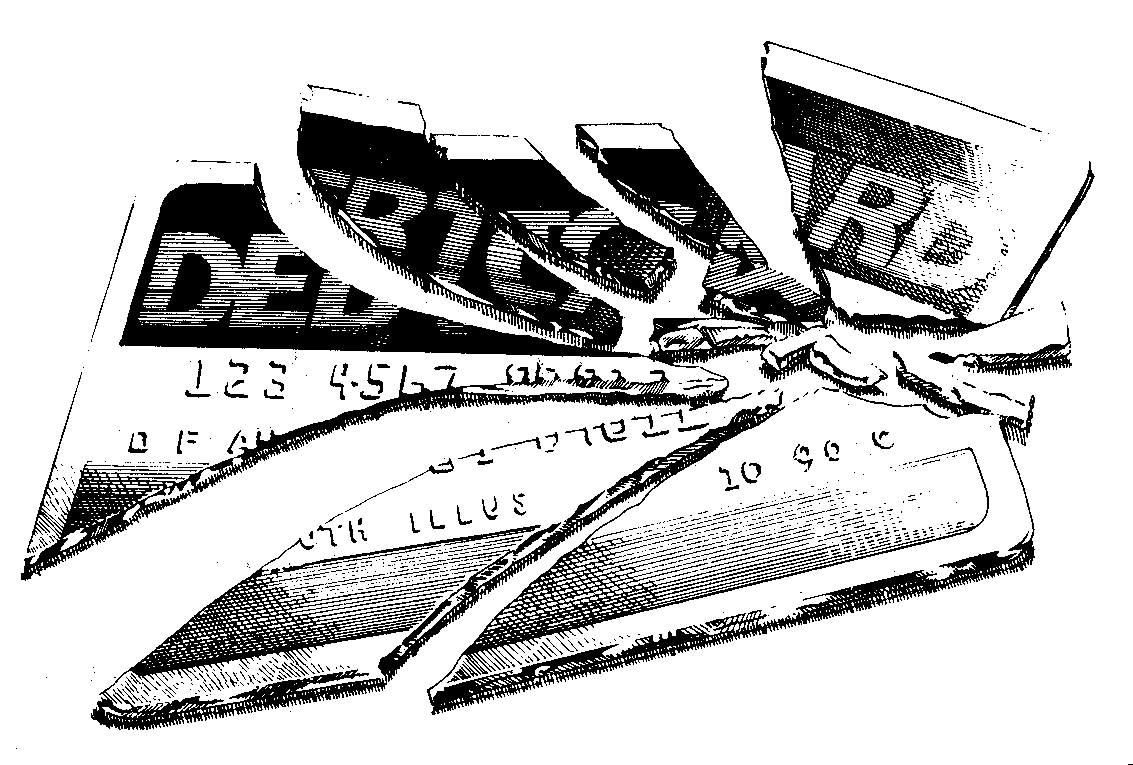
Graphic from Alternatives' collection Worship Alternatives: Art
More ART
Return to Table of Contents
Save Net Neutrality! Day of Action (7/12/18)
Hear Democracy Now! 7/11 -- Battle For the Net: Mass Day of Action Aims to Stop Trump's FCC from Destroying Free & Open Internet
Former FCC Commissioner on How Greater Media Consolidation is a Threat to Democracy and Free Speech
Everyone Can Stand up for Net Neutrality
Watch John Oliver's stunning rant!
Also, Last Week Tonight with John Oliver on the dangers of Network Consolidation (Sinclair Broadcast Group)
MORE LEGACY BLOGS
July '16
July '17
July '18
July '19
July '20
July '21 [none??]
July '22
Return to Table of Contents
Month 6*--Alternative Giving
More 'Alternative Giving' Resources
Week 1: Contributions
6/1--Reflect. Substitute the word "stuff" for money. "No one can serve two masters... You cannot serve God and wealth."-Matthew 6:24 (also Luke 16:13)
Guidelines
Index of past issues
6/2--Confused by all the requests for money? Call your denominational office or consider a clearinghouse like IPM -- International Partners in Mission: An ecumenical ministry for justice and hope -- that focuses on small, grassroots efforts around the world (ipmconnect.org). They do the homework. You choose the organizations you prefer or let them choose.
RIP, Jim [obituary]
'Volunteers are Beyond Measure!' Dawn Snyder bestowed the 'Friend of Conservation 2015' award to our illustrious leader, Jim Redmond, during last night's Dorothy Pecaut Nature Center's Awards and Volunteer Dinner.
Jim Redmond, exemplifies the importance of living in ecological consciousness wherever we are. Jim is a leader in the Iowa Sierra Club and has great knowledge about relating to the Missouri River with ecological integrity.
If you're a Sierra Club member in the state of Iowa, what kind of issues are you addressing? If you're not in Iowa, you'll be able to translate all the issues discussed in this podcast into similar ones in your area: protecting fragile habitats, pure water, using the natural world in ways that recognize our interdependence with it.
6/3--Most groups now have foundations or endowments that receive tax-deductible gifts while you're living or after you've died. Check with your denomination. Consider bequests in your will for your congregation, for your denomination and for other worthy organizations.
6/4--Some credit cards give you "cash back," some charge no annual fee, others have lower interest. The best ones give a percentage of your purchases to charity. Many environmental groups offer these "conscience cards." We use GreenAmerica.org VISA. [Read Lee's blog 'A Credit Card That Does NOT Use a Mega-Bank.']
6/5--Most of us use some criteria to decide who and what to support. Several national magazines investigate non-profits and then publish lists of "worthwhile charities." CharityNavigator.org rates thousands of charities according to effectiveness and lists the salaries of the executives.
6/6--Investigate FaithAndMoneyNetwork.org (formerly Ministry of Money): Discipleship, Compassion, Stewardship, which offers "Third World pilgrimages," leads workshops and publishes a newsletter. Also, MoreThanMoney.org, a quarterly from the non-profit Impact Project explores the personal, political and spiritual impact of wealth in our lives. It has expanded now to BolderGiving.org and GivingCommunities.org
6/7--Development Funds allow you to decide how much of the return you keep and how much provides credits and small business assistance to poor microentrepreneurs throughout the world. Community Loan Funds provide a low but stable return and support small businesses.
For a list of agencies you may wish to contact for more information on a specific area of concern or for the purpose of making a charitable donation, see
This podcast is about resistance to our 24/7 civilization. Quiet, disciplined resistance. Practicing alternative, slower behaviors to the fast food, nano-second hurry of a work week, and living richer because of it. This interview with Walter Brueggemann will surprise, disturb, and delight you!!
The interview revolves around the word 'Sabbath.' It's a surprise, because not so many of us would likely hurry to listen to a podcast on Sabbath. But this half-hour interview with Brueggemann goes to highly unpredictable places. This podcast will destroy the stereotypes about Sabbath.
Walter Brueggemann is surely one of the most influential Bible interpreters of our time. He is the author of over one hundred books and numerous scholarly articles.
[ walterbrueggemann.com/resources/books/books-by-walter-brueggemann ] He continues to be a highly sought-after speaker.
Walter Brueggemann's web site: About, Books, Audio/Video ||
[ Wikipedia ]
Sabbath as Resistance: Saying NO to the Culture of NOW
6/8--"One's life does not consist in the abundance of possessions."-from Luke 12:13-34. What do I own that is not necessary for the activities I find most meaningful? What would I do with my free time if I only had to spend half as much time working? [Trek]
For more information this week:
Treasury of Celebrations, Part II: Gifts, pp. 88-126.
Popular among young adults is the concept of Minimalism. Investigate BecomingMinimalist.com, TheMinimalists.com, and JoelZaslofsky.com (Smart and Simple Matters).
To obtain materials on Alternative Gift Markets, see To Celebrate, pp. 44-46.
For a list of agencies you may wish to contact for more information on a specific area of concern or for the purpose of making a charitable donation, see
Return to Table of Contents
6/9--Reflect. "For the love of money is root of all kinds of evil, and in their eagerness to be rich some have wandered away from the faith and pierced themselves with many pains." -1 Timothy 6:6-10.
Graphic from Alternatives' collection Spirit of Simplicity:
Quotes & Art for Simpler Living and Global Justice
More ART
6/10--Many denominations have a volunteer youth corps, placing high school and college graduates into places of need for one or two years. The U.S. government's Peace Corps (overseas assignments) and VISTA program (Volunteers in Service to America-stateside placement) do not restrict by age.
Costs, technologies, rebates, and policies change rapidly around solar energy. If you haven't updated yourself since 2014, you're likely not aware of how affordable and convenient it is. This episode's interview with Hal Brody lets the sun shine on all of these issues. Every day the sun sends more energy to Earth than what we use globally in a year. But our technology has lagged in using it. How about today? Is solar energy still more expensive or does it now compete in price with carbon energies?
6/11--Most service agencies (like Lutheran Social Service or Catholic Charities) and service clubs (like Lions) welcome and need volunteers. Over 250 fraternal organizations, such as Thrivent Financial, plow their profits back into our communities and congregations by giving challenge grants and encouraging volunteerism.
6/12--NGO's - "non-government organizations" (like Red Cross) - can be very effective in meeting social needs. Some, like Habitat for Humanity, are heavily volunteer driven. Some, like Big Brothers and Sisters, are very personal and one-on-one.
6/13--Learn how to say NO, Thanks. Most volunteer work is meaningful. But most organizations will ask for more and more. We have to set our own limits.
6/14--Non-conform Freely Celebration--Flag Day. Fly an Earth flag to show that our allegiance is first to Earth, then to a country, culture or civilization.
When an economy HAS to grow in order to be strong, it cannot answer the questions raised in this podcast: How much is enough? And how does living with a sense of enough affect the quality of our lives and the lives of others? Earth, our planetary home, has strong opinions about how much of what she produces is for each of us. Our choices about enough put us between what the growth economy says and what the ecospheres say. What does an economy of enough look like? How can we encourage one another in choices of sufficiency when we're often told that we deserve more? When all around us we're being lured into nicer, better, and greater? What happens to poverty and wealth in a world where everyone takes only their portion? This podcast lets you in on one person's choices about enough and more, sufficiency and excess. PLUS, our guest raises a haunting question that grows out of the biblical story of manna, the food for the people of Israel while they were in the desert after leaving Egypt. Here's the question: Even though the Bible clearly states that a container of manna is to be in the Ark of the Covenant as a perpetual reminder of enough, why do we never see so much as a symbol of it in centers of Judeo-Christian worship? Don't go away.
Lee met Paul initially when they attended an event led by Faith and Money Network, Inc., part of the Church of the Savior in Washington, D.C. Paul has chaired the board of Faith and Money Network for awhile. Along the way, his wife, Cara, and Lee's, Juanita, developed a wonderful relationship, and that too facilitated our getting together. Paul and Cara live just outside of Sacramento. It was on one of our visits that Paul wondered aloud why houses of worship did not have in them a symbol of Enough?
6/15--Mid-month Sabbath: take a break, catch up on the latest nudges, or relish these Alternative Giving QUOTES and ART
With the average house in San Diego in 2016, selling at over $500,000, and with almost 800 San Diego homes selling for over $2M in 2015, just what does 'affordable housing' mean? (Just to compare: the average home in Cleveland, OH, sells for around $80,000.) What level of income is needed in San Diego to become a homeowner? When the Market does not, and cannot, provide houses affordable to people in the workforce, what alternatives are there to paying rents that continue rising? Is renting your only option, and therefore paying all your housing money to someone else who does own? Stay with us for this episode of The Common Good Podcast because we're talking with the executive director of one non-profit that defines 'affordable housing' in a way that many people in the workforce can become homeowners, not just in San Diego County, but all across the country.
This podcast updates us on the community land trust model of making homes available for ownership at 20%-or-so below the market rate. I've been on the board of the SDCLT since its inception, chairing it for at least three years, so I believe in this model of housing. The reasons will become clear as I talk with Jean Diaz, who became Ex. Dir. in 2013.
6/16--[Fundraising items that are useful and carry a message are available from Earth Care. Their program for children includes environmentally friendly products... greeting cards and wrapping paper made of recycled paper at a discount, such as Northern Sun, Jim Morris T-shirts, EarthShirtz and Social T's.]
EcoMall.com, 'A Place to Help Save the Earth,' searches hundreds of sites that carry green products.
Prayer for Father's Day: O God, bless fathers to care for their own offspring and those who care for orphans and others' offspring in need. And bless those who choose not to have children to help curb overpopulation for the health of Mother Earth and survival of all her inhabitants. Amen.
Return to Table of Contents
More Alternative Giving
6/17--Reflect. "Keep your lives from the love of money, and be content with what you have; for he has said, 'I will never leave you or forsake you.'"-Hebrews 13:5
6/18--Translate your environmental tithe into cash. How much money have you saved so far by conserving resources? Give that amount to an environmental organization, preferably a grass roots Christian one.
6/19--Jesus washed others' feet and instituted the Great Meal as symbols of community. As a national community, our extravagant lives impact negatively on people around the globe. Besides prayer and almsgiving, what other ways can we work for Eco-Justice?
6/20--Consider "giving of ourselves" by volunteering time for groups that help the truly needy... tree planting, public education/information, protest letters and boycotts of polluters, lobbying governments, restoring housing, developing rooftop and community gardens. "Giving of ourselves" includes our special skills, like writing, carpentry, sewing, making music. What activity has little or no value in our lives? TV? Movies? Could we reduce some entertainment to allow more time for volunteering?
- Part 1: Celebrating Ugly Food / Gleaning with Pastor Amy Beveridge, Gail McNichols-Oliver and Emily Wilson
Exploring the intersection of food, water & faith in a time of drought, every Sunday in August, Bethel Lutheran Church (ELCA), Templeton, CA - Speakers, film, music, worship, fun! + Ugly Food Banquet. - Bethel Lutheran's Ugly Food Project promotion items (media releases, bulletin inserts, etc.) Plus an extended conversation with Gail McNichols-Oliver, a founder of GleanSLO, and Biblical reflections by Pr. Amy in light of Jesus' feeding the multitudes.
- Part 2: Fighting for Clean Water with Paula Wansa
VIDEO--Thirsty for Justice: The Struggle for the Human Right to Water
[ vimeo.com/87513817 ]
6/21--First Day of Summer
SLW! Legacy Blog: One Way to Solve Our Beggar Dilemma
6/22--Jesus experienced a slow and painful death for our sakes. The possibilities for new relationship with God and others that he invites us to can be lived out NOW with Creation. Pledge to help bring about reduction in the negative environmental impact of our companies, churches or schools.
6/23--Jesus went through hell for our sakes. Are we willing to follow his example? Take personal responsibility for breaking the cycle of addiction to overconsumption. Pledge to raise your children in an environmentally sensitive way and to set a good example for them.
Author Lee Van Ham gives us a preview of 'From Egos to Eden: Our Heroic Journey to Keep Earth Livable,' vol. 2 of his Eden for the 21st Century trilogy, due out Feb. 6, 2017.
6/24--Alternatives' gift card & envelope "We Honor Christ's Birth by Continuing His Work" helps when we give gifts in other peoples' names. Check with them before giving, or give to groups they already support or have said they would like to support, groups you can support with a clear conscience.
Susan Taylor of Just Money Advisors on Relating to Money in a Toxic Culture and Parenting Children about Money
6/25--At the mid-point of the year, do you feel more free from the burdens of "stuff" separating us from others, from God, from ourselves? How many of the ideas were you able to try? Seriously. How many can you continue? How can we share our experience with others in a friendly, non-judgmental way? We can be living testimonials to a simpler, more God-pleasing life.
For more information this week:
Return to Table of Contents
Week Four--Planning Alternative Christmas Events Early
6/26--Many churches and groups organize Alternative Christmas events in the fall. Alternatives' How to Organize an Alternative Christmas Community Festival and Planning an Alternative Christmas Workshop might help. The three basic plans can be used singly or combined.
#1. Offer information about worthwhile organizations and encourage people to give a monetary gift in someone else's name. Most people consider it an honor to receive a "gift" that makes a difference. Contact Alternative Gifts International (800/842-2243 or AltGifts.org)
- #80: Pre-Advent [11/1]
6/27--#2. Sell to or give to others crafts and clothing from artisans of non-industrial countries. Your family and friends get beautiful gifts at reasonable prices. Third World artisans get a fair price for their work since volunteer fairs and shops don't take a large share. Contact: SERRV International (SERRV.org); Ten Thousand Villages (TenThousandVillages.com); Friends of the Third World (FriendsOfTheThirdWorld.org) and Sharing the Dream (SharingTheDream.org).
6/28--#3. Organize an Alternative Christmas Workshop at your church. Several churches might work together. Go beyond gift-giving to the purpose of celebrating Christmas. Give people other ways to celebrate. Use support materials like Unplug the Christmas Machine and Leader's Guide to Unplug the Christmas Machine Workshop, also in audio. (See December.)
6/29--Non-Conform Freely Celebration: RETIREMENT
To obtain materials on Alternative Gift Markets, see To Celebrate, pp. 44-46.
To shop by mail for Third World Crafts, contact those on June 27th
and read excerpts from The Conscious Consumer: Promoting Economic Justice Through Fair Trade. [ fairtraderesource.org/uploads/2007/11/conscious-consumer-excerpts.pdf\ ]
Become familiar with FairTradeFederation.org (formerly Fair Trade Resource Network).
Also see Treasury of Celebrations, pp. 285-286.
- #83: Christmas Season - Epiphany [12/15]
6/30--Coming in July: Money & Goods // Green Business || Green Investing || Green Products || Personal Finance, Credit & Debt || Economics QUOTES
Heifer Project International (Heifer.org) provides livestock and training to needy families in 100+ countries. Their Gift Catalog offers clothing and crafts. Their World Ark receives gifts in others' names.
MORE LEGACY BLOGS
June '17
June '18
June '19
June '20
June '21
June '22
Month 5*
Return to Table of Contents
Asian Pacific American Heritage Month [ https://en.wikipedia.org/wiki/Asian_Pacific_American_Heritage_Month\ ]
Earth Care - The 4 R's
Week 1: ReDuce
5/1- Ponder: "There are two ways to get enough. One is to continue to accumulate more and more. The other is to desire less." - G.K. Chesterton
5/2--During a family or community meeting ask, "Are we committed to work through the Simpler Living calendar together? What is our 'comfort level' in reducing consumption? (10%?) How far are we willing to stretch? How do our faith and church help us or hinder us to make a commitment to God's Creation?"
5/3--Conduct a Personal Environmental Audit. How much waste do I produce? How much of how many resources do I waste? How do I overconsume? Make a list. Add to it as you go. For help, try Better World Handbook.
5/4--So many positive changes are possible. Don't try to do them all at once. Start now, even if you're unsure of the result. Getting started is what's important. As we succeed, we're more open to doing something new. Take this pledge or write your own. "For the sake of myself, of others and of God's Creation, I pledge to learn about my overconsumption and to do what I can to curb it."
5/5--Avoid toys and products that use batteries. When batteries are unavoidable, use only rechargeable batteries.
[ en.wikipedia.org/wiki/Cinco_de_Mayo ]
5/6--Evangelical Environmental Network produces Creation Care Magazine and has issued several books. It encourages small groups and conducts service projects. Visit CreationCare.org. Religious Campaign for Forest Conservation conducts a series of explorations of nature (weekend seminars) and other activities. Visit EcoStewards.org.
5/7--Until our son graduated from high school he had not been able to save money. Despite all of our modeling of frugal behavior, he spent it as fast as he made it. Then he said, "Ya know, Dad, if I don't spend so much money, I don't have to make so much money."
[ eco-justice.org/E-200501.asp ]
5/8--We hope that our children will not succumb to the pressures of overconsumption that most call success. There are two ways to have the money we need. We can earn more, or we can spend less. Voluntary Simplicity says we'll have more time and energy for what really counts - for God and for the people in our lives - if we choose to spend less on things we really don't need.
Prayer for Mother's Day: O God, bless mothers to care for their own offspring and those who care for orphans and others' offspring in need. And bless those who choose not to have children to help curb overpopulation for the health of Mother Earth and survival of all her inhabitants. Amen.
Other May holidays include:
- Treasury of Celebrations, pp. 156-157
- To Celebrate, pp. 115-116).
- Worship Alternatives: Pentecost/Ordinary Time
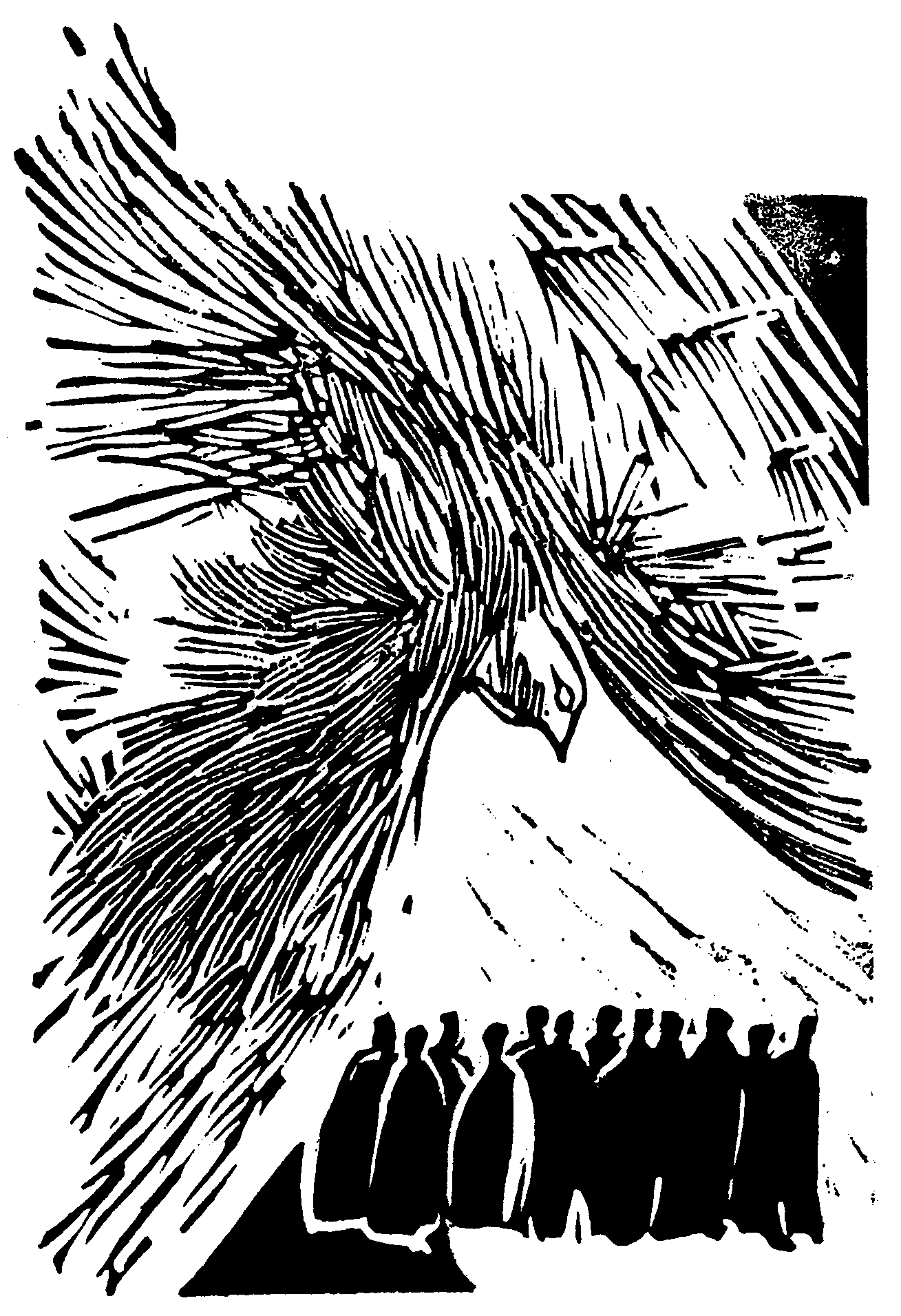
Graphic from Alternatives' collection Worship Alternatives: Art
More ART
Return to Table of Contents
Week 2: ReUse
5/9--ReUsing means to use something over again. RePurpose: use it again in a different way. ReFuse single-use consumables, such as styrofoam cups. Use things that can be repaired. That's not easy because so many thing are designed to break. It's called 'planned obsolescence.' We can buy tools and appliances and shoes that can be repaired but we need to do our homework to find them. It's not convenient.
5/10--Most denominations have an office dealing with Creation Stewardship or Eco-Justice. Contact yours, or Northwest Earth Institute (NWEI.org).
5/11--Educate yourself a bit about the subtle but powerful forces working against Earth. Petition state and national governments to require "full pricing" of goods. Full pricing includes the environmental impact of the making and disposing of goods.
Mel Lions, program manager at Wild Willow Farm and devoted educator, on how we can best create alternatives to the destructive practices of industrialized agriculture and factory farming.
5/12--Help reduce pollution. For example, learn about the detrimental effects of golf courses. In Hawaii the runoff from the rapid growth of golf courses for tourism is killing fish and making many residents sick.
5/13--"If riches increase, set not your heart on them."-Psalm 62:10. "Those who trust in their riches will wither."-Proverbs. 11:28. "Do not store up for yourselves treasures on Earth." -Matthew 6:21, 19. The biblical injunctions against exploitation of the poor and the accumulation of wealth are clear and straightforward. The Bible challenges nearly every economic value of contemporary society.
5/14--Some European countries require manufacturers to be responsible for the final disposition of their products. That should make manufacturers a lot more concerned about how the product is built, repaired and recycled. Petition government to make the manufacturers here responsible for an item after it's been used.
5/15--Put a bucket in your shower to catch the cold water while you're waiting for the hot. How many relatively easy uses can you think of for the water in the bucket besides watering your indoor plants?
5/16--"Do not damage the Earth or the sea or the trees." Revelation 7:3.
In this episode, a conversation between Dan Swanson and Lee Van Ham while they are participating in a border immersion in Nogales, Sonora (Mexico) peaks into what's trending in Jubilee's paradigm-changing mission.
To begin with the border immersion itself, it's important to note that it was a pilot venture by SCUPE (Seminary Consortium for Urban Pastoral Education), Chicago, as they seek to shift their pedagogy into modules conducted at various hotspots for ministry. Nogales is a hotspot for border crossings and deportations. So after two days of visiting many sites that hold the dynamics of the border, serving meals to deportees and listening to their stories, our hearts were opened to think in new ways about what kind of ministry and service make sense in this volatile, transformative context.
Return to Table of Contents
Week 3: ReCycle
5/17--Recycling means making something new out of something that's already been used. We recycle glass, paper and metal. We drop a can in the bin and carry the bin to the curb on recycle day. That's a start. But that's really the easiest and least necessary part of the whole cycle.
5/18--Even more important is pre-cycling - evaluating a product before buying it to make sure it is environmentally sound. Reduce the need for recycling. Avoid products that use excess packaging. Let manufacturers know you care. Chide the wasteful ones. Praise the helpful ones. Go shopping with a cloth bag. If you forget, request a paper bag and later use it to line your trash can. Decline plastic bags. Reuse all bags.
It is not enough to leave these important passages to commencement rituals nor to treat them as new occasions for needless consumption. Observances at home, with friends and in one's religious community can give these passages the attention they merit and aid the graduate to move on to life's next stage.
5/19--Then close the loop... buy products made of recycled materials, such as plastic lumber. It does little good to recycle if we don't then buy the products we use made of recycled materials. Recycling is not an excuse to keep on overconsuming as long as we recycle. Buy only the paper products you really need. It may for the time being cost a bit more to buy and use recycled paper. Sometimes it costs more to do what's right. Can we afford not to care for the Earth?
5/20--If a solicitation arrives that does not contain the recycled paper logo, send it back in the postpaid return envelope with a protest letter.
5/21--Worth Investigating
Hear cohosts Lee and Jerry comment on multiple themes comprising the common good, and the common people for whom those themes are a primary activity of their lives. It could be that the cohosts learned more than anyone else from the 2015 podcasts. They certainly increased connections to the people interviewed.
5/22--We get so much junk mail, phone calls and email. To prevent your name, address and home phone number from being used for direct mail or telemarketing purposes, register free of charge with the Direct Marketing Association's Telephone Preference Service, PO Box 9014, Farmingdale, NY 11735-9014. Visit http://www.dmaconsumers.org/offtelephonelist.html [ Obsolete: For more information visit NewDream.org, click on Junk Mail. ]
The impetus for this podcast came when TCGP cohost Lee Van Ham was one of the presenters at 'Seeking Simplicity: A Workshop for the Soul and the Planet,' hosted at St. Paul's Cathedral 1/16. The search for simplicity, not austerity, can get us closer to using only the capacities of our one planet instead of several. Yet, just what simplicity is varies widely; what size fits you? And does your size fit the planet?
5/23--"The Earth is the Lord's and all that is in it."-from Psalm 24:1-6. Contemplate a flower very closely. Notice the detail. Watch a sunset long enough to see it slowly evolve. Be in awe of Nature. But beware of "Bambi Talk," thinking and speaking of animals as "cute." The balance of nature is held by life and death competition among animals and plants. All creation deserves respect. Beware of cartoons that trivialize animals and nature, and of animal-based fads that sell more comic books, clothing and other stuff. Mammals, fish, birds and insects are not humans and need to be respected for their place in God's Creation.
5/24--TargetEarth.org has developed a rainforest conference center in Belize. With the mission "Serving the Earth, Serving the Poor," CEA has service opportunities in 15 countries; a full semester academic program; a retreat center in the Sierras; and field stations in Zimbabwe, Brazil and the U.S. Its Eden Conservancy buys endangered lands.
Return to Table of Contents
Week 4: ReStore
5/25--Do you get "Living on Earth" on your local public radio station? If so, tune in or subscribe to the podcast. Visit LoE.org. If not, petition the local manager to carry it and help find an "underwriter" to fund the broadcast.
Anne Marie Tipton, a volunteer with Fossil Free California, on the campaigns to divest from fossil fuels. She dates the divestment movement from the 2012 article by Bill McKibben published by _Rolling Stone_ magazine. Currently, over 500 entities have pledged to divest from fossil fuels, Stanford University and the City of Seattle are among them.
5/26--Restoring... remember what grandmother says, "You got it out. You put it back!" The most common example is trees. But this also relates to sustainable agriculture... putting natural, not synthetic nutrients back in the soil. Restoring helps make up for past mistakes but never should be used as a reason to make future ones. And some resources cannot be restored, like oil and topsoil.
Legacy blog: A Personal View of the Ascension
[ eco-justice.org/E-200522.asp ]
5/27--"A tree farm is not a forest." A forest is an eco-system with animals and insects. A tree farm is a place to produce a crop to make more paper, building materials, furniture, etc. Tree farms may be necessary but are not an excuse for de-forestation or clear-cutting.
5/28--At a population of 300+ million, Americans constitute about 5% of the current world population, yet are responsible for 30% of the total global resource consumption. We have earned ourselves the dubious distinction of becoming the most over populated nation on the planet. Over population is determined not by the number of people, but by the degree to which a population is out of balance with the environment. [Continued]
Voluntary Simplicity is both personal responsibility and advocacy for just public policy. It's more than personal happiness, though that's quite important.
5/29--If we do not change, the 567 million people born in the US in the 1990s will cause more environmental degradation than the 915 million born in the global South during the same period. Do we have the right to do that? -John Leon Fish
When TCGP co-host Jerry Iversen heard farmer William Ostrander speak at a Climate Action rally, he knew he wanted an interview for TCGP.
5/30--What does Jesus' cleansing of the temple tell us about our role as disciples? He was upsetting the status quo. Shall we be about the actual cleansing of God's Creation? Has it become a den of thieves? How can we prevent it from continually being corrupted by pollution and greed? Are we willing to deal with the resistance to change from the polluters? Look to 350.org for support.
5/31--EarthMinistry.org produces Earth Letter, its "mini-Journal of Christian environmental spirituality" and a variety of programs, workshops and resource materials. It's mission is to engage, educate and inspire individuals and congregations to deepen our relationship with creation and with the God of creation.
Other May holidays include on the Last Monday-Memorial Day (Treasury of Celebrations, p. 164-166; To Celebrate, pp. 122-124; bulletin inserts).
Graphic from Alternatives' collection Spirit of Simplicity:
Quotes & Art for Simpler Living and Global Justice
More ART
Coming in June: Alternative Giving || Contributions || Volunteering || Planning Alternative Christmas Events || One Way to Solve Our Beggar Dilemma
MORE LEGACY BLOGS
May '16
May '17
May '18
May '19
May '20
May '21
May '22
Month 4*
Early April SLW! Bonus Episode: Time for Healthcare for All--the Majority Want It and California's Nearly There
I recommend April 17 episode of Best of the Left Podcast: #1178 Economic Evolution (Capitalism, Consumerism and Beyond), especially segments on Doughnut Economics: Seven Ways to Think Like a 21st-Century Economist (Mar 29, 2018) by Kate Raworth
Recent Series--Simple Living SANITY
Mid-week Sabbath: Catch up on the latest nudges or relish these Care of Creation QUOTES & ART
Return to Table of Contents
Week 1: Earth Care
Voluntary Simplicity Life Principle #5: Cherish the Natural Order
Graphic from Alternatives' collection Spirit of Simplicity: Quotes & Art for Simpler Living and Global Justice
More ART
Week 1: Water
4/1--Read the Story of the Creation in Genesis chapters 1-2. Reflect on 'And Lord God put the human in the Garden of Eden to take care of it.' -Genesis 2:15.
[ https://en.wikipedia.org/wiki/April_Fools%27_Day ]
4/2--Our water is both precious and finite. While water covers 3/4 of the Earth's surface, 97.4% is salt water; 1.8% is frozen; only 0.8% is fresh water. Let's challenge the wasting and poisoning of our water supply. Over 1.5 billion people lack safe drinking water. Here's an invitation to conserve!
4/3--Turn the water off when not needed while washing hands, shaving, brushing teeth. Washing hands with tap running constantly takes two gallons; only one with the tap off and on. Shaving, tap on, 20 gallons; tap off, only one; brushing teeth, tap on, 10; tap off, only 1/2!
4/4--How much water would I use each day if I had to pump or carry it by hand? (from Trek) Normal toilet flushing uses 5-7 gallons. Fill a small milk jug and put it in the tank. Better yet, install an efficient toilet that uses fewer than 2 gallons.
4/5--A small leak from a faucet can waste 50 gallons of water per day. Fix leaky faucets. When using public facilities, report drips to the proper authorities. Ask why automatic sprinklers are running in the rain. Why do we water the street? When appropriate, recommend a drip system instead of sprinklers for lawn and garden.
4/6--The average washing machine uses 40 gallons per load. Can you wash fewer loads each week? Review your rationale for washing. Is it based on global solidarity, health considerations or advertising? "Sparkling clean" sells more soap but might do nothing for our health.
[ ecojusticecollaborative.org ], based in Chicago. They've moved south to Champaign, Illinois, putting them in the middle of the state and much closer to the vast Illinois coalfields being mined to meet our species' voracious appetite for energy.
4/7--Take only the number of showers you really need. Try one fewer this week. Need a shower to wake up? Wash your face instead. Install low flow shower heads. A regular shower uses 25 gallons; tub bath, 36. But a wet-down, soap-up, rinse-off shower uses only about four gallons! Turn off the water while soaping.
[ paceebene.org/events ]
4/8--It takes 1000 gallons of water to produce one pound of aluminum. If your state does not have a deposit on beverage containers, petition your state representatives to require it. Reduce or cease using aluminum cans altogether. Both producing and recycling aluminum are financially and ecologically costly.

Graphic from Alternatives' collection Worship Alternatives: Art
More ART
Learn more about these holidays in Treasury of Celebrations and To Celebrate.
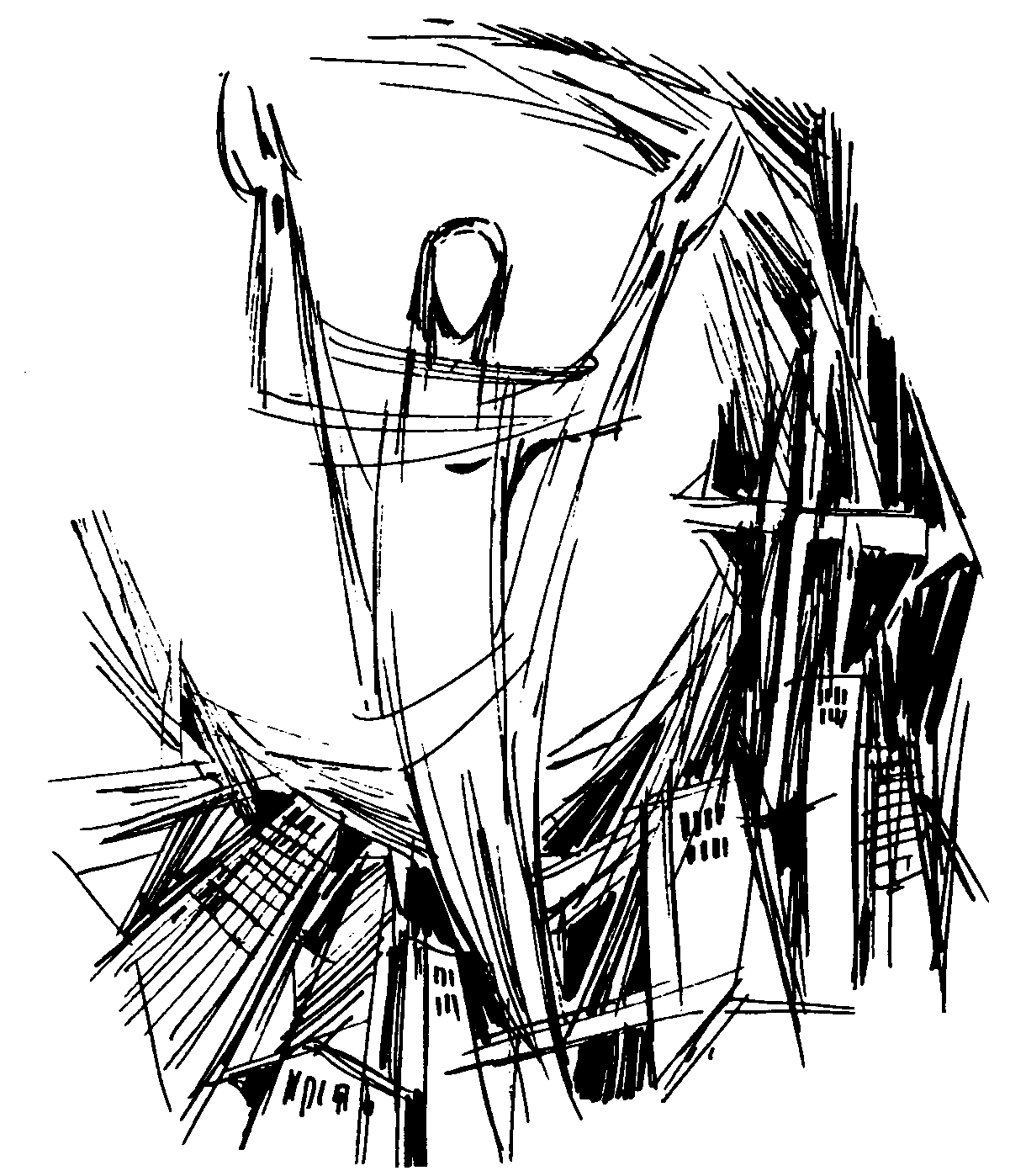
Graphic from Alternatives' collection Worship Alternatives: Art
More ART
Return to Table of Contents
Week 2: Energy
4/9--At church, home or office heat only the part of the building you are using, not the whole thing, with high efficiency space heaters.
4/10--Set thermostats no higher than 68F in the winter and no lower than 78F in the summer. Dress appropriately. Style is no excuse to waste energy! Layers of clothing can be put on or taken off to keep comfy. Use the body's natural heating and cooling systems.
4/11--Consider using spot lighting rather than general lighting. Convert incandescent bulbs to fluorescent or other high efficiency bulbs. Turn off incandescent lights whenever not in use; turn off fluorescent lights if you do not expect to return within an hour.
4/12--Wash the dishes by hand today; get somebody to help; tell jokes. Hang the clothes out to dry this week. Inquire about an energy audit from your local utility.
4/13--Plan recreation that gives physical exercise and/or builds relationships but uses little fuel or other nonrenewable resources. Take only short trips or carpool, walk, bike or use public transit.
4/14--Turn your water heater thermostat down to no higher than 120F. After heating and air conditioning, the water heater is usually the biggest user of energy in a house. Wrapping it in a thermal blanket will increase its insulation and your savings.
[ http://www.eco-justice.org/E-200410.asp\ ] (4/3)
What kind of development locally or internationally can truly be called sustainable? And what lessons have been learned that give us reason to believe that 'sustainable development' is being re-imagined so that the common good is being served? Do listen to this episode.
4/15--Worth Reading - Creation Care Capsules and Eco-Justice Notes
4/16--Read the Story of Noah in Genesis 6-9:17. Reflect on 6:19-22 and 9:8-17. God does not want the Earth harmed.
For more information this week:
Graphic from Alternatives' collection Spirit of Simplicity: Care of Creation
Return to Table of Contents
Week 3: Chemicals & Waste
4/17--Reflect on the implications of the Prophet. "Is it not enough for you to feed on the good pasture? Must you also trample the rest of your pasture with your feet? Is it not enough for you to drink clear water? Must you also muddy the rest with your feet?" - Ezekiel 34:18
[ postcarbon.org/crazytown ]
4/18--Reduce the use of make-up by at least 10%. Let your natural beauty shine! Be aware of the pressure on women to conform to "Madison Avenue's" standard of appearance. Read labels. If you must use make-up, only use brands not tested on animals.
It's noble, right, and good spiritual practice to defend ordinary people being marginalized by great powers. And it's dangerous! Recent reports of both the United Nations Commission on Human Rights and Amnesty Int'l speak of the challenges and dangers in the Americas to all who defend human rights. 'In Latin America and the Caribbean it is increasingly common to see human rights defenders facing unfounded accusations and unfair detentions. It is of the utmost concern that the authorities are failing to stop the misuse of the justice system as a means of repression,' said Nancy Tapias Torrado, Amnesty Int'l. Talk with any human rights attorney. They can tell you about the calls received in the night; the threats to them and their family. How can we be in solidarity with these attorneys and strengthen them?
4/19--Reduce the use of chemicals for cleaning. Then use only biodegradable, "green" products. Are our standards based on health or appearance? Can our Earth afford the "whitest white"?
4/20--Reduce chemicals on your lawn and garden. Consider a low-maintenance lawn (like Buffalo grass) that requires less water and mowing. Reduce lawn mowing by at least 10%. An average gas mower cutting an average American lawn pollutes as much as a 300 mile car trip.
With ticket prices to concerts up in the stratosphere, at least for the high profile artists, is it true or false that the artists we listen to in parks, subways, coffeehouses, street fairs, churches, and bars are inferior? Or are they intentionally sharing their art from their heart with us, preferring to meet people where we are instead of being part of the high-end venues? What kind of art best serves the Common Good? Our guest this time speaks to some of these questions. He's following his call to be an artist for change, and an artist who wants to be with the people in common settings.
4/21--The first R is the most important... and hardest for Americans... REDUCE. That's what Simple Living is about. As important as recycling is, it is not an excuse for waste. It's more important to REDUCE consumption and waste.
4/22--Earth Day. The Earth belongs to God and therefore cannot be held perpetually. -Leviticus 25:23
Christle deepens our understanding in this episode of how California is and is not prepared to manage a coherent response to water shortages across California as the state wide drought continues into the 5th year. Christle helps us sort out the following:
1. Separating fear and panic from the real concerns we have about water across the state.
2. The preparedness of the water boards to establish clear guides for all sectors of California's economy, cities, rural life, etc.
3. The exceptions being given to industrial agriculture and fracking in the early restrictions: Are these simply caving to economic powers or are other factors also involved?
4. What longer term solutions do you consider vital to how we steward water?
5. Religions of the World, including First Peoples, regard water to be sacred, not to be commodified. How can such a worldview be part of long term solutions?
4/23--How can I learn to say joyfully, "Here. Take this. It is the best that I have." When have I most joyfully given to someone in need? What allowed me to give so joyfully? (from Trek)
4/24--E the Environmental Magazine is a bimonthly, independent publication that works to inspire people to educate themselves on issues in order to take action to effect change personally and/or politically. Visit EMagazine.com
Pope Francis released his encyclical on the environment, Laudato Si' [ en.wikipedia.org/wiki/Laudato_si'\ ] , on the day we pre-recorded this podcast. Many reviews, affirmative and critical, are already appearing online. Study guides will follow in the months ahead. In the Fall, 2015, Pope Francis will address the U.S. Congress and the U.N. General Assembly. How great will be the impacts of the encyclical? Much depends on whether users, Catholics and all others, maximize or minimize it.
This episode does not, however, major in the Pope's encyclical, but in a conference called 'Pando Populous: Seizing the Alternative'--an int'l event on thinking that gets us to an 'ecological civilization.'
Graphic from Alternatives' collection Spirit of Simplicity:
Quotes & Art for Simpler Living and Global Justice
More ART
Return to Table of Contents
Consumables
4/25--Think of the implications for the Creation of John 3:16-21 - "For God so loved the world..." People, animals, plants, all Creation.
4/26--Use cloth napkins. Throw a paper napkin away only after it's completely used.
4/27--Share at least one newspaper or magazine subscription with a friend or neighbor or read it at the office or the library. Renew subscriptions based on need, not out of habit. It takes 17 trees to make one ton of paper from non-recycled sources. It takes about 280 gallons of water to produce one large Sunday paper (after the trees are grown).
4/28--Recycle paper, metal, glass, etc. Set up properly marked bins at home, church, work, school. Volunteer to help get the materials to the recycling center. If your community does not have curb-side pick up of recyclables, petition City Council to start it, even if it means an additional fee or tax.
'It is reckless to suppose that biodiversity can be diminished indefinitely without threatening humanity itself.' Edward O. Wilson
He's a principle at Lincer & Associates, LLC, a woman-owned business, and president of Researchers Implementing Conservation Action. He's also Research Fellow, San Diego Zoological Society (Institute for Conservation Research) and Research Associate, San Diego Museum of Natural History.
4/29--Take your own mugs, plates and silver if you go to a fast food restaurant. Use them instead of disposable cups and plates. Keep these items handy in your car or on your bike. Make a list of other disposables to avoid.
One main emphasis of the programs she leads is to empower teachers to use the outdoors to engage children in science, enhance their scientific- inquiry skills and to inspire and develop an appreciation of the environment and ecosystems in San Diego County. Judie also is a Naturalist Guide for SD Audubon and leads 4th grade curriculum-based hikes at the Silverwood Wildlife Sanctuary in Lakeside, as well as hikes for Outdoor Explore!-an after school program that takes children on hikes in nearby nature. Judie has a lifelong passion for sharing her love of nature with all.
4/30--Non-Conform-Freely Celebrations--COMING 5/5-5/11/25--Screen-Free Week (formerly TV Turnoff Week and Digital DeTox Week, the last week in April) from the Center for Screen-Time Awareness. Escape the Fantasy - Get Real! No more radiation, laugh tracks or gratuitous violence. And once you try real life, you may never want to go back to the simulated variety again. Visit ScreenFree.org
[ treehugger.com ]
MORE LEGACY BLOGS
April '17
4/18
Month 4 '19
4/20
4/21
4/22 -- all
May 2-8--Screen-Free Week (formerly TV Turnoff Week and Digital DeTox Week, the last week in April) from the Center for Screen-Time Awareness. Escape the Fantasy - Get Real! No more radiation, laugh tracks or gratuitous violence. And once you try real life, you may never want to go back to the simulated variety again. Visit ScreenFree.org
Return to Table of Contents
NOTE: SLW! ENHANCED Simpler Living Daily Nudges contain all of the legacy episodes of The Common Good Podcast, Simple Living Works! Podcast and Simpler OneEarth Living Podcast--mostly in chronological order.
Month 3*
Global Justice
Week One: Language
3/1--Our language shapes the way we think. Inclusive language opens us to more inclusive lives. Inclusive language may seem a little awkward because it feels new or different, not because it's wrong.
The Leopold Center for Sustainable Agriculture explores and cultivates alternatives that secure healthier people and landscapes in Iowa and the nation.
3/2--Using inclusive language does not assume that everyone is alike or even equal in abilities. It recognizes that each person has different gifts but that we treat all with respect, not with prejudice. All are of equal value in God's sight.
See Episode 43: Mark Rasmussen #1: Aldo Leopold's Legacy Addresses Industrial Agriculture's Overuse of Soil & Water
Mentions in This Episode: World Food Prize Summit | Occupy the World Food Prize Summary Report
// Related Material ]
3/3--When we hear the term "politically correct" or "PC," someone may be denigrating inclusive language.
3/4--"Sexism," "racism," "ageism" are expressions of prejudice, that we "pre-judge" people by their age, race or gender. We make up our mind about someone before getting to know them. All of these are very real. They combine prejudice and power. We can't escape prejudice but we can catch ourselves, say "Ooops," and instead be open to the person.
3/5--Our attitudes about global justice are reinforced by language. We may think of people in developing countries as less than we because of their race or income. We may take a condescending or superior attitude, wanting to help "those poor souls." Instead, let's offer our help, not impose it, like we would want others to offer us help when we're in need. We're all family... the human family.
3/6--Beware of media and organizations that spread unconscious and excessive American nationalism, that suggest that Americans are superior than others because of our great wealth and power, that play on our fear of the unknown.
3/7--Do we impose titles on people, such as 'Mr. and Mrs.,' that they have not requested? Do we call people by their first names or diminutives when such may show a lack of respect?
3/8--International Women's Day (Treasury of Celebrations, pp. 141-144; To Celebrate, p. 107)
For more information this week:
Orthodox Lent usually begins in March.
Return to Table of Contents
Week Two: Hunger and Homelessness
Graphic from Alternatives' collection Spirit of Simplicity:
Quotes & Art for Simpler Living and Global Justice
More ART
3/9--Front line organizations, such as World Vision, Oxfam, Care, Heifer Project, Self Help, provide direct aid and self-help programs to needy people. Advocacy groups, like Bread for the World, lobby governments to do more for the needy. The U.S. government has access to more resources than do private organizations that depend on contributions. Participate in Bread's OFFERING of LETTERS at your local chapter or congregation or in your home.
3/10--Investigate global justice magazines, such as New Internationalist: the People, the Ideas, the Action in the Fight for World Development
3/11--Your congregation probably has a Social Ministry Committee. Find out what the members do. Typical projects are direct help, such as serving at the local Soup Kitchen, or education, such as a Social Concerns Fair. Resolve to participate in one project this year.
3/12--Your denomination probably has a national or regional hunger office. Contact it, find out what it does and consider giving it a contribution this year. Church World Service (800/456-1310 or ChurchWorldService.org) sponsors the national interfaith CROP Walks each year. Either walk or sponsor a walker this fall. Help start a walk if your community doesn't have one yet.
3/13--Worth Reading
3/14--Check to see if your city and state have a Human Rights Commission. Make one phone call or read their web site to find out what they do to confront prejudice. Check the government section in the front of your phone book or do an internet search.
3/15--Simplicity is not romanticizing poverty, monks, the Amish or people who struggled through the Great Depression. We only diminish those people's devotion or struggle, and we tend to try to make the journey of discipleship look silly or "for others," unrelated to us, untouchable. Poverty is NOT fun. Two thirds of the world population live in poverty involuntarily. We have a choice.
3/16--"Just as you did it to one of the least of these... you did it to me."-from Matthew 25:31-40. What sense of connection with people in need can unlock my compassion and generosity? Was there ever a time when I really didn't have enough money? How did or does that make me feel about people who are wealthier than me? (from Trek)
Graphic from Alternatives' collection Spirit of Simplicity:
Quotes & Art for Simpler Living and Global Justice
More ART
Return to Table of Contents
Week Three: Peace/Non-Violence
3/17--St. Patrick's Day (To Celebrate, p. 108). Ponder "If you want peace, work for justice." August 6 is Peace Day or Hiroshima Day.
3/18--The pursuit of Peace: 12 steps of peacemaking can make your faith more than just talk. 1. Pray for peace and for one another. 2. See faces. 3. Learn names and stories. 4. Take the first step to love. 5. Reach out and touch. 6. Find common ground. 7. Make relationships concrete. 8. Give peace offerings. 9. Learn languages. 10. Eat together. 11. Celebrate together. 12. Stand with those in danger. -Ann Helmke
3/19--Does your denomination have a Peace and Justice office? Investigate Fellowship of Reconciliation, an association of religious Peace Fellowships. Call 914/358-4601, ask for a copy of Fellowship Magazine.
3/20--First Day of Spring (Treasury of Celebrations, pp. 145-148; To Celebrate, pp. 108-110). What can you do to reduce street crime? Would you join a brigade to remove gang-related graffiti?
3/21--Contact Center of Concern: Promoting Global Justice and Peace since 1971 (CoC.org); Pax Christi (PaxChristiUSA.org) which works for peace for all humankind; Pace e bene; Waging NonViolence; Teach Peace Now; War Resisters' League
3/22--Simple Living Works! offers many resources designed for children or people who work with children (like parents!). We hope to affect children's buying habits early because they are targeted by so many advertisers. A well-intentioned grandmother said, "I like to spoil my grandchildren when they're little. But when they turn ten, I CUT 'EM OFF." We're hoping to be a little more helpful.
3/23--Read Alternatives' "War Toys and Christmas: A Contradiction in Terms" and "Organize for Peace: How to Start a Peacemaking Group in Your Church."
For more information this week:
Return to Table of Contents
Week Four: Advocacy/Boycotts
3/24--Central America Week
3/25--Over the years people of faith have used boycotts to reduce poor social practices among businesses, such as Nestle Company's practices in the Developing World. The organizer of that boycott is still at work for other causes - Corporate Accountability International (formerly InFact.org: Challenging Corporate Abuse, Building Grassroots Power, Since 1977). Most denominations have an advocacy office. Contact yours and find out what they do. Alternatives' "Reaching Out Through the Media" helps promote events and causes.
3/26--Small, every day protests can be effective. Businesses listen to buyers. Most want to avoid controversy. Most want to do business quietly as usual, even if some results are harmful or wasteful... as long as they're profitable. The strongest way to challenge such businesses occurs when we might diminish their "bottom line." Change to a different maker of a similar product that is less wasteful. Then write a letter explaining your concern or join an organized boycott to make sure that the egregious company gets the point.
[UPDATE: The latest edition of Diet for a Small Planet was released in 2021.]
3/27--Assertive folks buy one share of an offending company's stock, file shareholder resolutions, attend the annual meeting and verbally protest the company's policies.
3/28--Non-Conform Freely Celebration: Holy Week/Good Friday
3/29--An organization like WorkingAssets.com/CREDO (800/548-2567) provides long distance, credit card and investment services and is an advocate for change. Their profits go to a wide variety of grassroots organizations, voted on by the customers annually.
MultiEarth's worldview has so fervently separated spirituality from science and knowledge that one of the challenges for living the OneEarth way is articulating how the sacred infuses all of life. In this second interview with Colin Richard on The Common Good Podcast, he tells us of the yearnings he has to live inside a spiritually-infused, sustainable culture. It's a yearning many share.
3/30--Find out who your local, state and national government representatives are. Your local library, League of Women Voters or an internet search can provide a list of names, addresses, phone and e-mail. Write at least one letter expressing your support for laws (and lawmakers!) that protect the environment, not degrade it. And send one not supporting climate change deniers. You can also call your senators' and representative's office in your part of the state. Check directory assistance or search the internet.
Kathleen Beck has lived a chunk of her life on one mountain, demonstrating the satisfaction and power of one whose ecological, spiritual, and educational orientation have roots in a particular place. Her relationship with Volcan Mountain includes the sense of the sacred there--an experience long recognized by the Kumeyaay People of Southern California. Loving Volcan has led Kathleen to be a nature interpreter and guide there. She tends its rich, fragile biosystems. Along with other artists of the area, Volcan inspires her artistically and spiritually.
3/31--Government officials are influenced by hand written letters instead of signed form letters or "petitions." Most organizations will supply a sample letter on an issue that you want to address. You can then word it in your own style. Address your letter to: Senator ___, United States Senate, Washington, DC 20510; Representative ___, House of Representatives, Washington, DC 20515. Or call the Capitol switchboard (202/244-3121) to talk with your members of Congress or to get their FAX numbers or e-mail addresses. Close a letter with "Please let me hear from you on this issue." Most will respond, at least with a form letter presenting their position.
Dan brings us a mighty important perspective on the economically and politically driven immigration of Latinos to the U.S. He helps us know some effective ways to respond in conversation and action. Dan has been involved with Jubilee Economics since its founding and continues to be involved as a board member. He is a skilled liaison for people who are interested in one of our 'opening the eyes' immersions to southern Mexico. ]
Week Four: Advocacy/Boycotts
MORE LEGACY BLOGS
March '17
March '18
Month 3 '19
2021
2022
Return to Table of Contents
NOTE: SLW! ENHANCED Simpler Living Daily Nudges contain all of the legacy episodes of The Common Good Podcast, Simple Living Works! Podcast and Simpler OneEarth Living Podcast--mostly in chronological order.
Month 2*
Celebrating More Responsibly
Week 1: Music/Worship

Graphic from Alternatives' collection Worship Alternatives: Art
More ART
2/1--Musicians are not exempt from the call to offer help to the needy and to care for God's Creation. Urge your congregation to put on a benefit concert, including some music of social responsibility. Worthwhile musicals are Lazarus from Bread for the World, and The Race: A Simplicity Musical from the ELCA Hunger Program.
2/2--Write a letter to the music publishers your congregation uses the most. Urge them to use recycled paper and soy-based inks when they print their music.
Change is happening at The Common Good Podcast. We have new studio environment, a new software program, a new opportunity to employ Skype to conduct conversations, and most of all, a new collaborator in Gerald Iversen, our feature conversation partner for this month. With all this change happening at once, Ed reflects on how this puts TCGP into a new era, version 4.
2/3--A great, inexpensive hymnal on social responsibility is Banquet of Praise from Bread for the World. Give a copy to your Minister of Music and offer to buy more copies for your choir, youth group or congregation.
Change continues at The Common Good Podcast - new software and a new collaborator in Gerald Iversen. Jerry gives mostly serious insights about how jubilee economics and voluntary simple living come together in practical ways.
2/4--Alternatives' Worship Alternatives collection includes hymns, litanies, etc. on global justice. The Hymn Society in the United States and Canada (TheHymnSociety.org or 800/THE-HYMN) has several collections and papers on topics related to Voluntary Simplicity, including Sing Justice! Do Justice!
Advertising is designed to keep us dissatisfied. How can we resist it's pressure? How do we help children? Also, will Jubilee Economics or simple living make any real difference? What does the Future look like? And, Lee and Jerry give Tips for Simpler, More Meaningful Celebrations. Plus the latest JEM updates.
2/5--BWAAG (Better World Artists' & Activists' Guild) says, "Never underestimate the power within you to make a better world." This non-profit, national ecumenical network of individuals who are committed to enriching the peace and social justice ministers of congregations and related organizations has produced several recordings and songbooks. Visit Better World Series site or FaceBook.
[ or https://en.wikipedia.org/wiki/Black_History_Month ]
The 2012 elections accentuate explicitly the overwhelming dollars pouring into government in the U.S., whithering democracy in the hot sun of their influence. This is what Bob Edgar actively resists in his work as President and CEO of Common Cause.
2/6--Investigate Alternatives' booklets and recordings Sing Justice! Do Justice! and Stories and Songs of Simple Living.
This podcast features some of our thoughts about learning to live in the Presence of the sacred. JEM followers have urged us to talk about how we link the Common Good practices that we talk about on this show to our spirituality; to do it explicitly, not just vaguely. So in this episode we give it a go.
2/7--In Celtic Christianity, the wild goose is a symbol for the Holy Spirit. Wild Goose Songs from the Iona Community in Scotland are very direct and powerful.
Barry Ladendorf is a veteran of the VietNam War. But by the time he was into his third tour of duty, on a naval ship stationed off the coast, he no longer believed that the war was succeeding nor that it was making the world safe for democracy. The U.S. gov't persisted in claiming both.
2/8--After the Bible, the hymnal often is the second most important book to many Christians. If you do not have one, buy your denominational hymnal for your office and home for private and family daily devotions. Read one hymn per day as poetry. Sing the ones you know.
Martin L. King, Jr.'s speech, "Where Do We Go from Here?" gives us inspiration to give voice to what others are remaining silent about. African-Americans have repeatedly raised their voices and marched their feet for right relationships in America when America's too-white leadership kept silent, retaining their positions of power unfairly.
Richard Lawrence tells us of his experiences giving voice with King and others to how the economic system was ruled by whites in ways that acutely excluded blacks. Richard was present in Selma (1965) and led clergy in Chicago's Englewood neighborhood in an important business and bank boycott which King joined in.
More on celebrating more responsibly in November and December.
For more information this week:
Other February holidays include
Return to Table of Contents
Week 2: Preparing for Lent, Easter and Other Spring Festivals
2/9--Celebrations belong to people. They are not natural resources to be strip-mined each year for the sake of profit. Treasury of Celebrations channels our desire to celebrate into activities that truly nourish the human spirit, express our solidarity with all the Earth's people, and respect the environment. If you are not satisfied with consumer-oriented celebrations, this big book of creative ideas will help you resist consumer pressures and celebrate in a more spiritually fulfilling, joyful way.
Harry Watkins, former marketing consultant to businesses, and currently teaching in the Fermanian School of Business at Point Loma Nazarene University, shares his conversion to sustainability, how generating sustainable businesses is part of what his evangelical faith requires, and how he's joined with other faculty to change the curriculum to show that being sustainable in business is no longer a nice option if you can work it in, but is essential to good business.
2/10--"Freedom from anxiety is characterized by three inner attitudes. If what we have we receive as a gift, and if what we have is to be cared for by God, and if what we have is available to others, then we possess freedom from anxiety. This is the inward reality of simplicity. However, if what we have we believe we have gotten and if what we have we believe we must hold onto, and if what we have is not available to others, then we live in anxiety. Such persons will never know simplicity regardless of the outward contortions they may put themselves through in order to live 'the simple life.'" --Richard Foster (a Christian theologian and author in the Quaker tradition, best known for his 1978 book 'Celebration of Discipline'; also 'Freedom of Simplicity,' 1981; 'Longing for God' with Gayle Beebe, 2008)
How many businesses can you name that you use because they are on the sustainability journey? Harry Watkins, professor in the business school at Point Loma Nazarene University, returns to TCGP to tell us about a few businesses that he knows of PLUS a guide for online shopping that helps us pick the most sustainable version of whatever product it is that we're looking for. Businesses on the sustainability journey help us walk it too.
2/11--Alternatives' numerous Worship, Study & Activity Guides for Lent and Easter include "An Easter Seder" (meal) and "A Passover Seder." Some resources are intergenerational.
From 1971-1976, Earl Butz was Sec'y of Agriculture under Presidents Nixon and Ford. He had a mantra for farmers across America: Get big or get out. On this episode we're talking about people who never believed Earl Butz.
2/12--'Who's Risen from the Dead, Anyway?' collection
What happens this century -- ever-worsening climate disasters or effective action to fight climate change --depends on the knowledge and action of every American. Sen. Rob Hogg provides information and stimulus in his new book America's Climate Century: What Climate Change Means for America in the 21st Century and What Americans Can Do About It.
2/13--Alternatives' numerous 40 Day Calendars for Lent (as bulletin inserts, a poster or booklet) can be used within lectionary cycles or not. Some also come in Spanish; one is for children.
For more information read Treasury of Celebrations, Part III, pp.127-227
On Ash Wednesday (beginning of Lent) we are reminded of our mortality. What do we really want to accomplish in our lifetime? Daydream about people living in harmony in a clean environment. Make the fantasy as positive and fun as possible. Focus on the people and the Earth interacting, not on "stuff," things, possessions or money.
2/14--St. Valentine's Day
Graphic from Alternatives' collection Spirit of Simplicity: Quotes & Art for Simpler Living and Global Justice
More ART
2/15--"If I give away all my possessions... but do not have love, I gain nothing." - from I Corinthians 13. What keeps me from giving the gift of myself more often? What non-material gifts could I give on the various gift-giving occasions during the year? (from Trek)
Return to Table of Contents
Week 3: Rites of Passage
2/16--Treasury of Celebrations: Create Celebrations That Reflect Your Values and Don't Cost the Earth contains life affirming ways to celebrate holidays and rites of passage, such as births, graduations and deaths. It draws material from the six Alternate Celebrations Catalogs published from 1973-87 by Alternatives and adds new ideas in its 384 pages. To Celebrate: Reshaping Holidays and Rites of Passage is the predecessor of Treasury .
2/17--Non-Conform Freely Celebration: Ash Wednesday (First Day of Lent--3/5/25) Treasury of Celebration: Lent
2/18--The average American wedding now costs over $27,000. We can find value and meaning without going into debt. Wedding Alternatives (The Alternative Wedding Book) helps create a beautiful wedding that reflects true family values and doesn't cost the Earth. It comes in English or in Spanish (Nuestra Boda).
2/19--A January-February, issue of Modern Bride Magazine contained 940 pages! The Alternative Wedding Book offers alternatives to engaged couples, clergy and others... alternatives to the bridal magazines and professional bridal consultants. It encourages couples to use their imaginations as they incorporate their values and family and ethnic traditions in planning meaningful wedding celebrations. It's a practical planning guide with personal stories from people who chose more than the status quo wedding.
2/20--The Alternative Wedding Book details ways to sort out what is important to you and make your wedding what you want it to be. It gives guidelines for ceremonies (with eight complete examples) and practical and cost-cutting tips on food, flowers, decorations, photography, clothing, music, location, setting, entertainment, invitations, even choosing rings. The Wedding Timeline/Checklist is a fast and easy way to make sure your plans run smoothly and that everything gets done. The Budget Worksheet will help you save money and time.
John produced the films Affluenza: The All-Consuming Epidemic, Escape from Affluenza, and coauthored the "Affluenza" book. The 3rd edition of the book was released Dec., 2013.
2/21--What messages about material goods do I get from my church or faith community? Do my closest friends push me toward deeper values, or make it harder to live them out? (from Trek)
2/22--New Road Ministries (803/892-2556) offers bereavement seminars and video. The classic Dealing Creatively with Death and numerous children's books dealing with death and grieving are valuable resources. Also natural funerals.
For more information this week:
Other February holidays include on Third Monday-President's Day (Washington's Birthday observed) (MF) (To Celebrate, p. 95).
Return to Table of Contents
Week 4: What Is "Enough"?
2/23--Meditate on the concept of "enough." "Give me neither poverty nor riches; feed me with the food that I need." - from Proverbs 30:7-9. "The one who had much did not have too much, and the one who had little did not have too little." -II Corinthians 8:15. Do I think a world where everyone has enough is part of God's vision for humankind?
2/24--"Why do you spend your money for that which is not bread, and your labor for that which does not satisfy?"-from Isaiah 55:1-5. Do I give the people who love me what they most want from me? Am I able to spend the time I need to build special relationships with the people I love?
[ https://steadystate.org/learn/the-steady-stater-podcast/ ]
2/25--What is a good balance of "deferred gratification" and "taking no thought for tomorrow?" Will the amount of things I own continue to grow throughout my life, or will I eventually say, "that's enough"? How much do I need to accumulate before I can do what I really want to do? What am I doing now to enjoy life?
2/26--Spend an evening with one of your parents, a grandparent or other friend who has retired. Invite them to talk about the choices they have made about how to spend their lives. What choices have brought them the most joy? What do they wish they had done more of?
Juli-Ann Gasper led several student expeditions from Creighton University, Omaha, to the Dominican Republic to see how micro-finance works on the ground. She's also a fascinating fiber artist.
2/27--Do I use the things I own to build walls or bridges between myself and others? What messages do I receive about the need or desirability of "having my own space"? Who gives me those messages? If a fire destroyed my place, who would I ask to give me emergency housing?
Visit Lee's blog about his Eden Trilogy at OneEarthJubilee.com/jubilee-blog/page/3
In this episode Lee tells about how he became interested in writing, how this book is his own quest to understand the nonsensical way of living that requires more than one Earth, and some of those who have endorsed the book.
2/28--Meditate on "hospitality." What is the finest gift I can offer a visitor who comes into my life? When have I been received into someone's home or living space with great hospitality? What did they do to make me feel welcome? Who makes me feel most at ease in his or her presence? How does he or she make me feel at ease?
MORE LEGACY BLOGS
February '18
[2/29--Leap Year Day. What to do with an extra day? How can I work for just enough without tying myself into knots of guilt and despair?]
Return to Table of Contents
NOTE: SLW! ENHANCED Simpler Living Daily Nudges contain all of the legacy episodes of The Common Good Podcast, Simple Living Works! Podcast and Simpler OneEarth Living Podcast--mostly in chronological order.
Month 1 The Life Principles of Voluntary Simplicity
HELPS: Simple Living QUOTES || SLW! Podcast: The 5 Life Standards || Thematic Index: Living More with Less
Week One--Life Principle #1: Do Justice
Graphic from Alternatives' collection Spirit of Simplicity:
Quotes & Art for Simpler Living and Global Justice. More ART
1/2- Voluntary Simplicity is not about following rules, but about living by principles. Living more simply is about personal responsibility. It's seeing where our lives may be extravagant, even out-of-control, and deciding what to do a little at a time to cut down on overconsumption. Don't begin cold turkey. You might get frustrated and give up.
To live sustainably on our one planet, we need deep change (metanoia) in the story we live, shifting our economic choices and the world view they express.
1/3- 20% of the world's population - the Overconsumers - use 80% of the resources and the other 80% - the Sustainers - use only 20%. Our planet cannot sustain life if everyone lived like the Overconsumers. The motto of voluntary simplicity begins to make sense: Live simply that others may simply live. This calendar challenges us Overconsumers - virtually every person in North America, Western Europe and Japan - to offer up an Environmental Tithe, to reduce consumption of all resources by at least 10%. God put us on Earth to be stewards of Creation - sustainers, not abusers; protectors, not dominators.
If we cannot imagine the structures of a new economy, we cannot get there. The eyes of our inner artists can see ways to go. Lee discusses how any of us can rely on our inner artist to lead us to a world that reflects our deepest values, thus influencing how we move in the world.
1/4- Living more simply may mean dealing with our own resentment when others don't "get it." When we are making corrections to live more responsibly and others don't seem to have the slightest inclination to change their wasteful ways, we may feel angry. We can be living testimonials. We are not judgmental but we speak up whenever we have the chance.
This show looks at how we can see the Market and the macroeconomic picture as a functional religion. That is, how it takes on deity-like qualities, and is supported by figures akin to high priests, and has with it a narrative mythology of progress, ultimate worth, sin, and so on.
1/5- Simplicity is not "living on the cheap." It's more than being frugal, far from being a tightwad, and surely not being a miser. In some cases it may mean actually paying more for tools that are Earth-friendly. Instead it's a journey to find more meaning, more joy, more fun in life by getting out from under the burden of so much stuff - to remove the barrier of stuff that keeps us apart from other people, from God and even from ourselves.
We avoid fads, convenience and deprivation. Instead, we believe in abundance -- there's enough for everyone's need, not anybody's greed.
- Introduction to the Biblical Jubilee (1/19/13 // 17 min.)
- 7/17/20 (89 min.)
1/6- Epiphany. Consider using Alternatives' An Epiphany Celebration, in your congregation. Or read it here.
Graphic from Alternatives' collection Spirit of Simplicity:
Quotes & Art for Simpler Living and Global Justice
More ART
Lee's spouse Juanita is our first guest on the podcast. She talks about her work at the San Diego Cooperative Charter School, where their grandson went to school. She liked the role of managing the compost train so much that she stayed at the school even after Tyler moved on!
1/7- The first principle is not "Think about Justice," or even "Believe in Justice." It's "Do Justice!" Besides our prayers, our contributions, and our pressure on governments, we help the world's poor by consuming less, thereby making more available for others. Biblical justice reflects God's great love for the poor and our parallel call to live in a way that positively responds to their needs.
David Funkhouser of Fair Trade USA (formerly TransFair USA) is Strategic Relations coordinator for FTUSA in Oakland. He talks about his attraction to and involvement in the movement, the origins of FT, the processes for certifying cooperatives that produce the goods, and how FT meets needs of smaller producers better than the so-called free trade market, ensuring that participating farmers and artisans can remain situated in their homelands, as dignified and productive citizens.
1/8- In face of an economic system and an advertising industry that pressure us, we CAN take control of our own buying patterns! We can beat this addiction of overconsumption day by day... and then share ideas of simpler living with others.
For more information this week:
Return to Table of Contents
Week Two--Life Principle #2: Learn from the World Community
Graphic from Alternatives' collection Spirit of Simplicity:
Quotes & Art for Simpler Living and Global Justice
More ART
This episode features two guests from the San Diego Community Land Trust, where Lee Van Ham is the board chairman. Richard Lawrence, ordained in the Methodist Church, has a long history in social justice work, affordable housing efforts and community building in Chicago and San Diego. Anastasia Brewster, coordinator, has experience in Real Estate consulting and has worked with a Phoenix area CLT before coming to San Diego and working with the local CLT.
1/10--All things are connected. We want to help those poor people with THEIR problem OVER THERE. However, we need to realize many of their problems are caused by OUR problem OVER HERE, our overconsumption.
Lee goes it alone to talk about a season that is filled with holidays in so many traditions, most related to the solstice and its cosmological implications of downtime and ultimate promise of renewal. The shorter days are nature's way of modeling what the ancient Hebrews called the Sabbath: a punctuation in time, a bit of downtime for rest and renewal. Nature heeds this by default, but humans have, particularly in the last century, brushed that pattern aside with the go-go-go schedule operating at all hours on all days of the year.
1/11--A black bishop from Africa said, "White folks... yes, they're the people who can sing and NOT move at the same time." African music can help liberate other Christians.
Nancy Cassidy is the General Manager of the Ocean Beach People's Organic Food Market, a cooperatively owned retail store in San Diego. OB People's concentrates in selling vegetarian food, but the cooperative as a business model can be applied to any kind of business that is now run by a corporation. The difference of course, is that shares are held in a one-owner, one share manner and no one can accumulate shares and the influence that goes with them.
1/12--For every Christian that North America and Western Europe loses, Africa gains three! We have something profound to learn from our African brothers and sisters.
Legacy Podcast (TCG #89): Sr. Shirley Fineran::21st Century Slave Trade--Helping Victims Recover from Human Trafficking
Resources from NCTSN: National Child Traumatic Stress Network.
Jan Schalkwijk kicked off his financial advisor career in the traditional mold. But after a sweeping tour of the world in 2005, he came back energized to approach his career life with new vision for how to keep moving people toward sound investments but with an added criterion: to invest in companies and ventures that have the sustainable ethic in mind.
1/13--Ask yourself, "What can I live without?" Be uncomfortable. Take something off - a watch, an earring - as a reminder of less. Are you a slave to the clock? Are you burdened by too many clothes or jewelry? Take something off.
How are business majors being trained for the marketplace in the new context shaped by Earth's pushback on unlimited growth business models? That's where The Common Good goes in this episode with guest Harry Watkins, Professor of Strategy and Sustainability at the Fermanian School of Business, Point Loma Nazarene University, San Diego. Harry tells us about his moments that moved him to a passion for incorporating the people and planet into the bottom line, and the drive to get others on board with the triple bottom line.
1/14--Even people from our highly technological medical establishment are now seeing the potential of learning from native healers/shamans. We are learning natural cures from the rain forests.
If Einstein is right and we can't solve our problems by using the kind of thinking that created those problems, then we have our work cut out for us. When so many issues we face today are the children of a kind of male-dominated, selfish, and limited consciousness, how do we change that consciousness in order to steer the ship of human life another way?
1/15--What do children say when they want to do something they know is irresponsible? "But everybody's doing it!" Let's try that in our lives. "But God, everybody's driving a new car.... But God, everybody builds a big, expensive house that's many times bigger than they need, claiming it's for equity when the kids leave home.... But God, everybody has a yard that looks like a golf course so that nobody complains that we're lowering their property values...." Sounds just as silly and disconcerting as kids' requests to sleep outdoors on a sidewalk overnight to be in line for tickets to a rock concert.
See late June: Planning Alternative Christmas Events
1/16--Voluntary Simplicity is a consciousness, an awareness. It is a matter of personal responsibility. Before we buy or use something ask, "Do I really need to do this?"
Featured: Eric Putt and Andrea Deerheart of Thresholds, a mortuary service that provides home- and family-directed funerals that put the human dimension back into taking care of the deceased--a real alternative to the commercial funeral industry, which by intent or accident has usurped the role of loved ones to care-fully tend to the body.
No log-in required.
Also, see Additions and Corrections there throughout the month.
Return to Table of Contents
Week Three--Life Principle #3: Nurture People
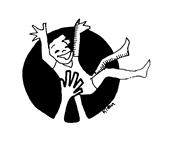
Graphic from Alternatives' collection Spirit of Simplicity: Quotes & Art
for Simpler Living and Global Justice
More ART
1/17--We find meaning in life through our relationships with God, the natural environment and people, not through stuff. Often we allow our things to own us. We go into debt paying for something. We have to maintain it, then secure it so nobody steals it! What owns whom?
Choosing to live on a budget of around $10,000 a year, Rick Zemlin tells how his consciousness has been shaped, how he determines what is enough for him. It isn't a prescription for everyone else, but for those who are looking for ways to adjust to new standard of living suitable for One Earth, Rick might be inspiring. He gives conceptual and practical examples of how one can live a dignified life with less, forgoing the things that might distract him from the spiritually-satisfying life he has led for decades now.
1/18--Create a game with yourself that you can play with your children or grandchildren. It's OK to admire things in stores and say, "I like that. I like THAT. I LIKE that." Make it not OK to say, "I want that," or even worse, "I need that."
Lauren Van Ham has had a love affair with the natural world and has found renewal from being there. She has worked in nonprofit and for-profit settings, ministry settings, corporate settings, and has found herself instructing WalMart employees and management in what sustainability means on a personal level. After some eye opening experiences showing her the great need for someone tuned into the needs of the Earth, she decided to recommit herself as an eco-chaplain, even re-ritualizing her ordination to solidify her commitment outwardly.
1/19--Think of the mall as a museum. Everything there is on display for your pleasure, but somebody else owns it. As you stroll through the galleries say, "Thank you store person for putting this here for me to see. I'm so glad you're responsible for all this stuff and I'M NOT."
Conversation between Lee Van Ham and Michael Johnson. Lee and Michael are collaborating on a project based on Lee's book-in-progress,The Eden We Can Choose: Moving to a One-Earth Economy and the Stories That Get Us There.
1/20--Intimacy... getting to know someone well... opening oneself up. When we choose to be intimate with our spouse, things can get in the way. To be intimate we may choose to take something off... to take everything off. Stuff can get in the way of intimacy in other situations as well. We can learn to recycle stuff and put relationships first.
Stephan von Kolkow and Laurie Britton, co-owners of the cleverly named Cafe Virtuoso, believe in delivering quality coffee and tea products primarily to wholesale customers. Their product line is all organic. (October is Fair Trade month.) How did Fair Trade look to them as businesspeople with a bottom line to mind?
1/21--Cooperative, non-competitive games nurture relationships. Try The Christmas Game I, The Christmas Game II, The Anytime Game, Lifestories: a fun board game of telling tales; Futurestories; and Conversation Pieces: Parents, Kids and Other Animals. See September 19 for more titles.
Eventually the American Dream proves itself to be otherwise. For Sung and Myra Sohn, arriving in the States from their native Korea, what awaited them was getting established in architectural studies (Sung—quite a renaissance man) and starting a career in pharmacology (Myra) and then joining with the usual frantic and disjointed rhythms of American life. Eventually they found that life not to their liking as its demands took a toll on family identity and cohesion. Sung envisioned an alternative housing arrangement based on shared life and spiritual practice, not just for his own family but for other residents and guests
1/22--A weekly family meeting at a set time helps to coordinate schedules and gives children respect, inclusiveness and empowerment. It can also diffuse arguments. At a time of tension, one can say, "Let's take this up at the family meeting." Take turns taking minutes. Follow with family fun-time.
Lots of stuff in this episode because there is much to report on. We plan to diversify content within each episode so as to keep you abreast of things in JEM-land, to reflect on some notable news, and to build community among our listeners and readers. We're starting to get the hang of this after all this time!
1/23--Reading aloud year-round, as well as telling one's own stories, builds relationships. When a parent reads to a child, a grandparent to a grandchild, spouses to each other, the act is as important as the story.
Now that The Common Good Podcast has been going on for about a year-and-a-half, Lee reflects on how JEM has worked reciprocally to serve content and to be shaped by our guests and friends who have left their feedback for either the podcast or the blog. We'd like to see more of that happening and we encourage listeners and readers to comment and add input that we can use within our blog and podcast.
1/24--"Quality time" can be a myth, an excuse to spend a little time together in order to spend more time working to make more money to accumulate more stuff. Quantity time is also needed for healthy relationships, being there... in sports and fun, worship, talking, the arts. If you find this is a problem, discipline yourself to keep track of relationship time and increase it 10% each month till you reach your goal.
For more information this week:
Other January holidays include
Martin Luther King, Jr. Day (Third Monday) (MF).

Graphic from Alternatives' collection Spirit of Simplicity:
Quotes & Art for Simpler Living and Global Justice
More ART
Return to Table of Contents
Week Four--Life Principle #4: Non-conform Freely
1/25--The forces against living simply are extremely powerful and devious. Some of them are quiet, unwritten... like how we dress in church, how our house will look at Christmas time. But many of them can be loud, in-your-face forces that work to get as deeply into our pocketbook as possible. (See September for media pressures.)
Lane Van Ham is our featured guest for this episode. (Okay, you figured it out. He's related to Lee just like Lauren from episode 16 is. We're a small organization!) Apparent nepotism not withstanding (no one is getting paid, ahem!), Lane's new book, A Common Humanity: Ritual, Religion and Immigrant Advocacy in Tucson, Arizona (University of Arizona Press) just came out and stands fine on its own. Having done his graduate studies in the field of immigrant advocacy, this book emerged from that experience.
1/26--Let's say what overconsumption often represents - addiction. As any addiction, it is powerful. It takes great will power, faith, and the right tools to beat an addiction. The addiction of overconsumption is reinforced by our culture. It is encouraged, fed, promoted by peer pressure and by advertising. We are told it is patriotic to buy, that our economy depends on it, that we are "worth it." We are worth much more than our stuff! Destroying the Earth in the name of 'economic growth' is not patriotic!
Jan Schalkwijk is a financial advisor with a specialty in targeting investment options for people who are looking at more than just the "old" bottom line of profits alone. Jan was introduced a year ago on Episode 11, but this time around we get into some more aspects of Socially Responsible Investing, of which Jan's "green" focus is a component. Jan is approached by Lee who presents himself as a potential client with questions about green investing, community investment options, and how the limits to growth are changing the game of investment strategy.
1/27--Worth Reading: the classic Your Money or Your Life by Joe Dominguez and Vicki Robin. Check out the recent SLW! Podcast about the latest edition.
1/28--Small groups could benefit from: Living More with Less Study Guide; Your Money or Your Life Study Guide, Simple Living / Compassionate Life.
1/29--"Is not life more than food, and the body more than clothing?"-from Matthew 6:24-33. How do my clothes reflect my personality and my values? Did the people who made my clothes get a fair wage for their work? Go to your clothes closet. Choose enough clothes to wear a different outfit each day for a week. Put the other clothes aside. Wear only the clothes you've chosen for the next two weeks. (from Trek)
Okay, we have to admit it. Jubilee Economics Ministries has a big idea that not everyone gets. When you're trying (like we are) to take on a world class issue that encompasses a vast swath of history and attempts to deal with the microcosmic and macrocosmic concepts of economics, it gets a little hard to follow. It's a big job trying to get the world to think another way, and while we've done a range of things and employed various media, sometimes we miss the forest for the trees, and things take a bit more explanation why things are how they are with JEM.
Graphic from Alternatives' collection Spirit of Simplicity:
Quotes & Art for Simpler Living and Global Justice
More ART
1/30--Shop at Goodwill and other thrift shops. Wear clothes from other cultures. Support others who break clothing stereotypes. Show the great fraud of "The clothes make the man" and "Dress for success." Is wearing "nice" clothes to church a matter of giving God our best? Wearing expensive clothes is giving our best to ourselves and our clique-mates.
Deb Mitchell was quite like millions of her time and place, comfortable in a middle class life with a good job at a major corporation. Without meaning to, she held advantage that she didn't even know she had over others. Eventually as her world grew larger than her Midwestern roots reached, Deb became more and more attuned to the dimension of life that had gone unnoticed for so long. Thanks to international travel and a changing corporate landscape, Deb was forced to look at things in a whole new way.
1/31--We can object when people suggest dress codes for voluntary events, such as company parties or church activities. Must men always feel obliged to wear a tie?
Doug Clegg wields a mean guitar. And a mean fiddle. And a mean mandolin. And a mean piano. And a mean resonator guitar. And ... well, just about any instrument in the folk music tool box. But even a bit more dangerously, he sports a formidable pen too. When he puts lyrics down, he just might channel the folk greats and their calls for just labor relations, or a healthy environment, or to call crooked politicians to truth.
For more information this week:
Life Principle #5: Cherish the Natural Order, appears in April and May.
MORE LEGACY BLOGS*In the spirit of non-conform freely, we choose to use month numbers instead of traditional names because the names are inaccurate (the ninth month, September, means '7'?!) and they honor gods and emperors from the warring ancient Roman culture. For more, read Weekly Nudge 8/8/18
Return to Table of Contents *In the spirit of non-conform freely, we choose to use month numbers instead of traditional names because the names are inaccurate (the ninth month, September, means '7'?!) and they honor gods and emperors from the warring ancient Roman culture. For more, read Weekly Nudge 8/8/18
On-Going Boycotts (Wikipedia)--notable current boycotts:
NOT CURRENTLY AVAILABLE -- To find out what boycotts are currently in effect, get Green America's Boycott Action News, (800/58-GREEN or GreenAmerica.org). It gives names, addresses and phone numbers of the organizers and the targets, and the reasons for the boycott.
SPARE Nudges
Guest blog--Eco-Justice: Solidarity Means Social Distancing
[ http://www.eco-justice.org/E-200313.asp\ ]
Legacy Guest blog--Eco-Justice: Get Ready for Earth Day
[ http://www.eco-justice.org/E-200228.asp\ ]ƒqw
IMAGE: Spirit of Simplicity: Voluntary Simplicity #1-A3386
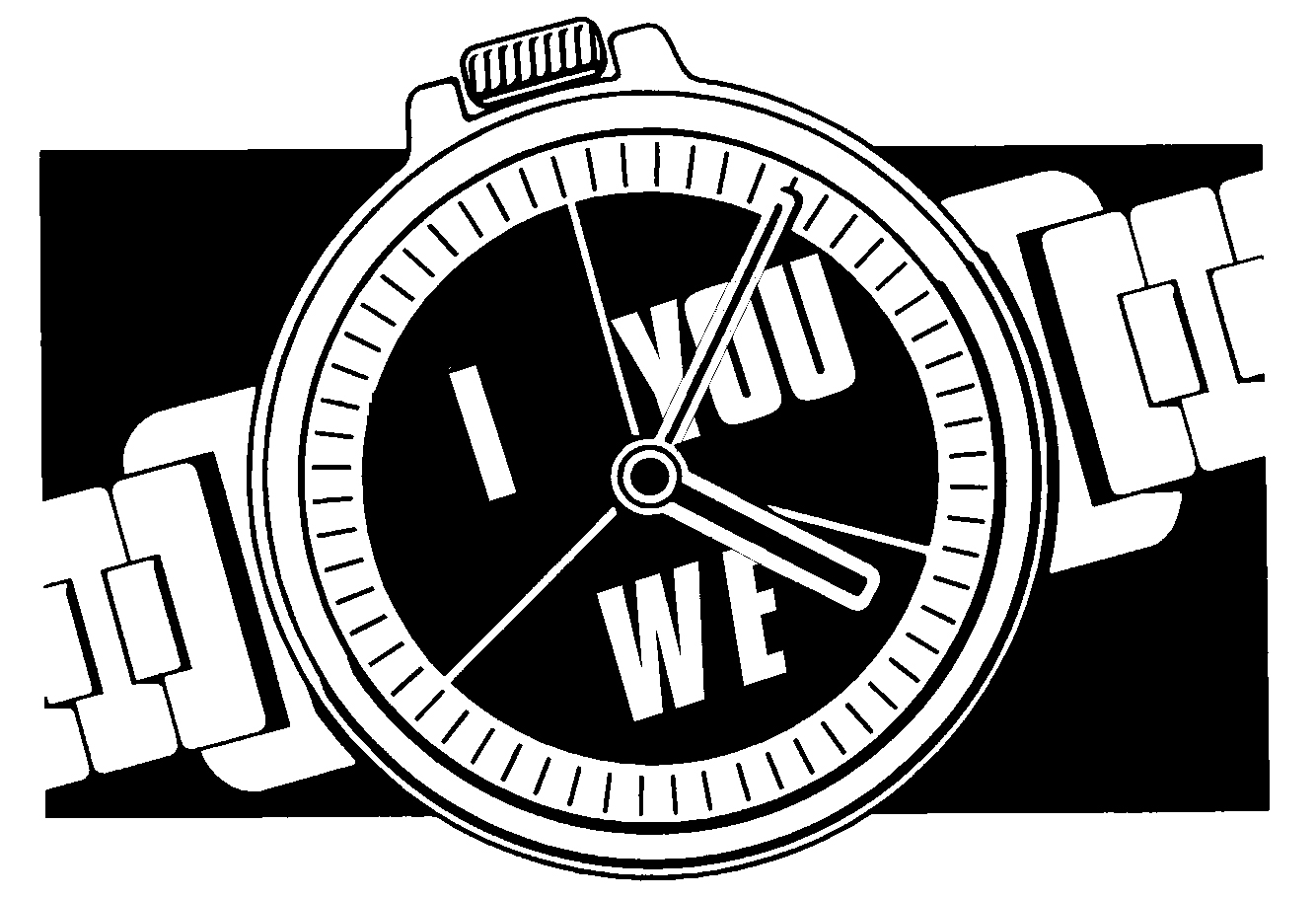
Page updated 3/25/25
Simple Living Works! * SimpleLivingWorks@Yahoo.com
BLOG: SimpleLivingWorks.WordPress.com
| Blog INDEX
PODCAST |
Podcast INDEX
VIDEOS
[ YouTube.com/SimpleLivingWorks ]
MISSION: Equipping people of faith to challenge consumerism, live justly and celebrate responsibly // An all volunteer educational organization.

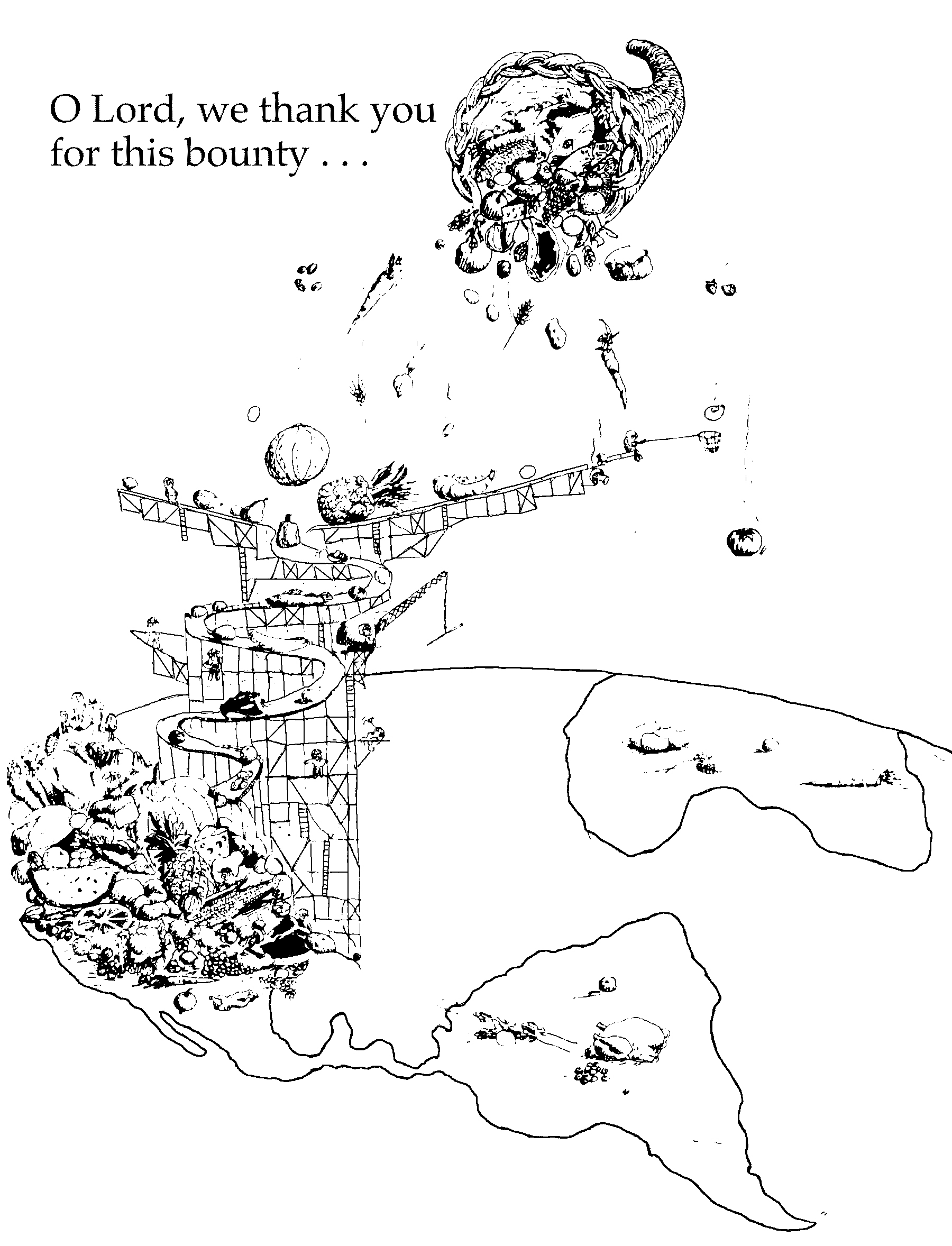
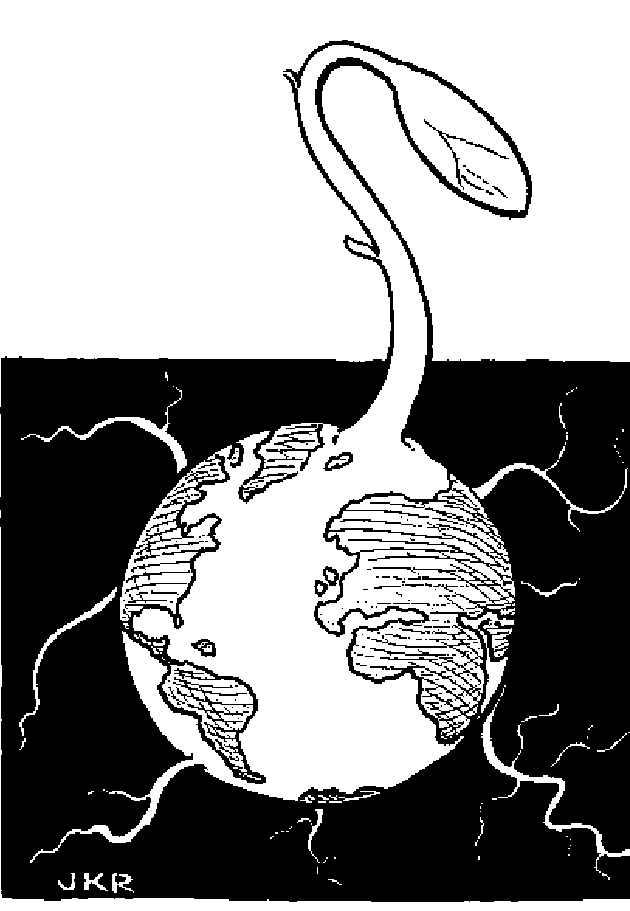
.JPG)
